#Collectanea
Explore tagged Tumblr posts
Text
Attention residents, observants, and interested parties of Ochre. This is a breaking news broadcast brought to you by the Golden Quill.
There have been reports that a mysterious individual, yet unidentified, is leaking secure documents from the Collectanea. This is the first time these documents have seen light, and their publication will hopefully shed light on the mysterious history- and record-keeping that the Rosiah family practices.
The Collectanea is mostly a mystery to the laypeople of Ochre and its parallel worlds. If they've heard of it at all, they know only that it is supposedly a massive library filled to the brim with records, historical documents, and internal communications from the elusive Rosiah family. It is said to be possibly the largest and most comprehensive source of information ever amassed - and all entirely closed to the public without specific petition or good reason.
An unidentified informant, thought to be either connected to the Rosiah family or an outsider, has begun to publish snippets of the vast quantity of documents found in the Collectanea. They are going by the pen name Danidy Driscoll, and at the time of this article, their motives remain unclear. The general consensus among the public, however, is gratitude for being having more access to this information and being able to learn about exotic and intriguing concepts.
More to follow, this is Golden Quill reporter Bennie Olivander.
Basically, I'm gonna do what @imatin3222 said and put MORE stuff out there rather than letting it gather dust in google drive. Not just polished pieces, but snippets of lore too that I just can't find a place for in the world guide yet. Just for funsies, because why not!!
Little snippets of lore and worldbuilding will be tagged with #Collectanea and titled with "[subject] - Excerpts from the Collectanea"
:)
1 note
·
View note
Text
Did the ancient Celts really paint themselves blue?
Part 2: Irish tattoos

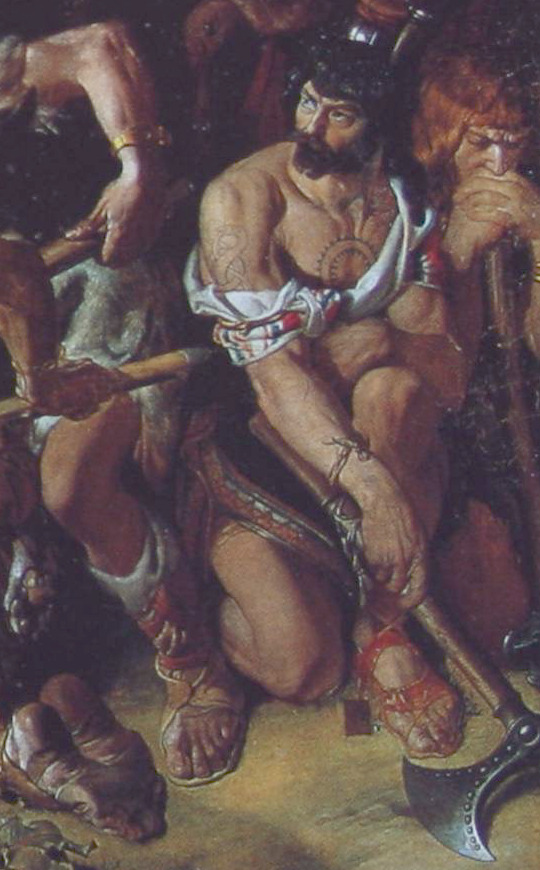
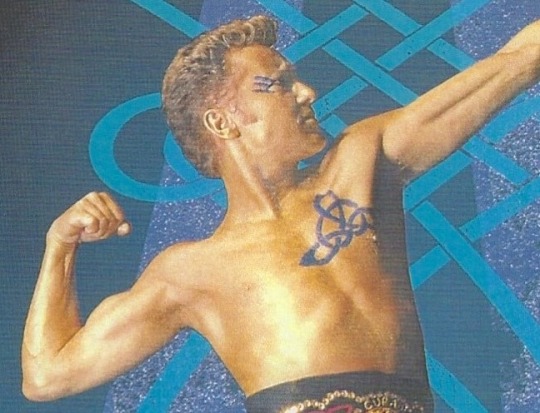
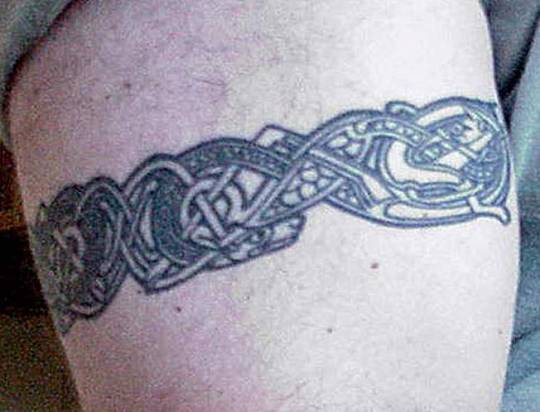
Clockwise from top left: Deirdre and Naoise from the Ulster Cycle by amylouioc, detail from The Marriage of Strongbow and Aoife by Daniel Maclise, a modern Celtic revival tattoo, Michael Flatley in a promotional image for the Irish step dance show 'Lord of the Dance'
This is my second post exploring the historical evidence for our modern belief that the ancient and medieval Insular Celts painted or tattooed themselves with blue pigment. In the first post, I discussed the fact that body paint seems to have been used by residents of Great Britain between approximately 50 BCE to 100 CE. In this post, I will examine the evidence for tattooing.
Once again, I am looking at sources pertaining to any ethnic group who lived in the British Isles, this time from the Roman Era to the early Middle Ages. The relevant text sources range from approximately 200 CE to 900 CE. I am including all British Isles cultures, because a) determining exactly which Insular culture various writers mean by terms like ‘Briton’, ‘Scot’, and ‘Pict’ is sometimes impossible and b) I don’t want to risk excluding any relevant evidence.
Continental Written Sources:
The earliest written source to mention tattoos in the British Isles is Herodian of Antioch’s History of the Roman Empire written circa 208 CE. In it, Herodian says of the Britons, "They tattoo their bodies with colored designs and drawings of all kinds of animals; for this reason they do not wear clothes, which would conceal the decorations on their bodies" (translation from MacQuarrie 1997). Herodian is probably reporting second-hand information given to him by soldiers who fought under Septimius Severus in Britain (MacQuarrie 1997) and shouldn't be considered a true primary source.
Also in the early 3rd century, Gaius Julius Solinus says in Collectanea Rerum Memorabilium 22.12, "regionem [Brittaniae] partim tenent barbari, quibus per artifices plagarum figuras iam inde a pueris variae animalium effigies incorporantur, inscriptisque visceribus hominis incremento pigmenti notae crescunt: nec quicquam mage patientiae loco nationes ferae ducunt, quam ut per memores cicatrices plurimum fuci artus bibant."
Translation: "The area [of Britain] is partly occupied by barbarians on whose bodies, from their childhood upwards, various forms of living creatures are represented by means of cunningly wrought marks: and when the flesh of the person has been deeply branded, then the marks of the pigment get larger as the man grows, and the barbaric nations regard it as the highest pitch of endurance to allow their limbs to drink in as much of the dye as possible through the scars which record this" (from MacQuarrie 1997).
This passage, like Herodian's, is clearly a description of tattooing, not body staining or painting. That said, I have no idea of tattoos actually work like this. I would think this would result in the adult having a faded, indistinct tattoo, but if anyone knows otherwise, please tell me.
The poet Claudian, writing in the early 5th c., is the first to specifically mention the Picts having tattoos (MacQuarrie 1997). In De Bello Gothico he says, "Venit & extremis legio praetenta Britannis,/ Quæ Scoto dat frena truci, ferroque notatas/ Perlegit exanimes Picto moriente figuras."
Translation: "The legion comes to make a trial of the most remote parts of Britain where it subdues the wild Scot and gazes on the iron-wrought figures on the face of the dying Pict" (from MacQuarrie 1997).
Last, and possibly least, of our Mediterranean sources is Isidore of Seville. In the early 7th c. he writes, "the Pictish race, their name derived from their body, which the efficient needle, with minute punctures, rubs in the juices squeezed from native plants so that it may bring these scars to its own fashion [. . .] The Scotti have their name from their own language by reason of [their] painted body, because they are marked by iron needles with dark coloring in the form of a marking of varying shapes." (translation from MacQuarrie 1997)
Isidore is the earliest writer to explicitly link the name 'Pict' to their 'painted' (Latin: pictus) i.e. tattooed bodies. Isidore probably borrowed information for his description from earlier writers like Claudian (MacQuarrie 1997).
In the 8th century, we have a source that definitely isn't Romans recycling old hearsay. In 786, a pair of papal legates visited the Anglo-Saxon kingdoms of Mercia and Northumbria (Story 1995). In their report to Pope Hadrian, the legates condemn pagans who have "superimposed most hideous cicatrices" (i.e gotten tattoos), likening the pagan practice to coloring oneself "with dirty spots". The location of the visit indicates that these are Anglo-Saxon tattoos rather than Celtic, but some scholars have suggested that the Anglo-Saxons might have adopted the practice from the Brittonic Celts (MacQuarrie 1997).
A gloss in the margin of the late 9th c. German manuscript Fulda Aa 2 defines Stingmata [sic] as "put pictures on the bodies as the Irish (Scotti) do." (translation from MacQuarrie 1997).
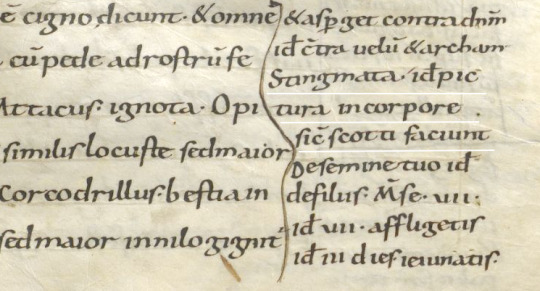
Fulda Aa 2 folio 43r The gloss is on the left underlined in white.
Irish Written Sources:
Irish texts that mention tattoos date to approximately 700-900 CE, although some of them have glosses that may be slightly later, and some of them cannot be precisely dated.
The first text source is a poem known in English as "The Caldron of Poesy," written in the early 8th c. (Breatnach 1981). The poem is purportedly the work of Amairgen, ollamh of the legendary Milesian kings. In the first stanza of the poem, he introduces himself saying, "I being white-kneed, blue-shanked, grey-bearded Amairgen." (translation from Breatnach 1981)
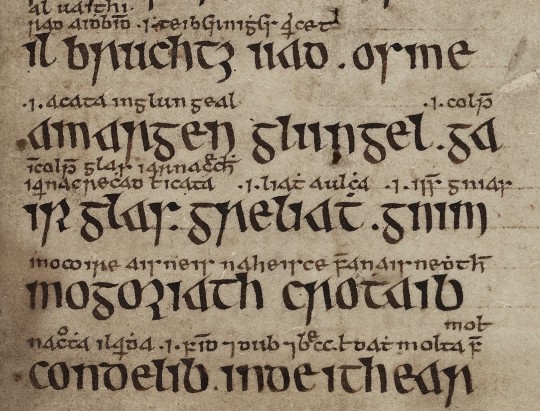
The text of the poem with interline glosses from Trinity College Dublin MS 1337/1
The word garrglas (blue-shanked) has a Middle Irish (c. 900-1200) gloss added by a later scribe, defining garrglas as: "a tattooed shank, or who has the blue tattooed shank" (Breatnach 1981).
Although Amairgen was a mythical figure, the position ollamh was not. An ollamh was the highest rank of poet in medieval Ireland, considered worthy of the same honor-price as a king (Carey 1997, Breatnach 1981). The fact that a man of such esteemed status introduces himself with the descriptor 'blue-shanked' suggests that tattoos were a respectable thing to have in early medieval Ireland.
The leg tattoos are also mentioned c. 900 CE in Cormac’s Glossary. It defines feirenn as "a thong which is about the calf of a man whence ‘a tattooed thong is tattooed about [the] calf’" (translation from MacQuarrie 1997)
The Irish legal text Uraicecht Becc, dated to the 9th or early 10th c., includes the word creccoire on a list of low-status occupations (Szacillo 2012, MacNeill 1924). A gloss defines it as: crechad glass ar na roscaib, a phrase which Szacillo interprets as meaning "making grey-blue sore (tattooing) on the eyes" (2012). This sounds rather strange, but another early Irish text clarifies it.
The Vita sancti Colmani abbatis de Land Elo written around the 8th-9th centuries (Szacillo 2012) contains the following episode:
On another time, St Colmán, looking upon his brother, who was the son of Beugne, saw that the lids of his eyes had been secretly painted with the hyacinth colour, as it was in the custom; and it was a great offence at St Colmán’s. He said to his brother: ‘May your eyes not see the light in your life (any more). And from that hour he was blind, seeing nothing until (his) death. (translation from Szacillo 2012).
The original Latin phrase describing what so offended St Colmán "palpebre oculorum illius latenter iacinto colore" does not contain the verb paint (pingo). It just says his eyelids were hyacinth (blue) colored. This passage together with the gloss from the Uraicecht Becc implies that there was a custom of tattooing people's eyelids blue in early medieval Ireland. A creccoire* was therefore a professional eyelid tattooer or a tattoo artist.
A possible third reference to tattooing the area around the eye is found in a list of Old Irish kennings. The kenning for the letter 'B' translates as 'Beauty of the eyebrow.' This kenning is glossed with the word crecad/creccad (McManus 1988). Crecad could be translated as cauterizing, branding, or tattooing (eDIL). McManus suggests "adornment (by tattooing) of the eyebrow" as a plausible interpretation of how crecad relates to the beauty of the eyebrow (1988). The precise date of this text is not known (McManus 1988), but Old Irish was used c. 600-900 CE, meaning this text is of a similar date to the other Irish references to tattoos.
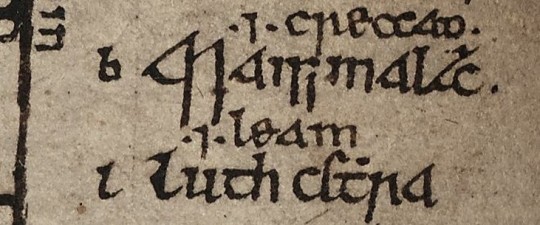
Kenning of the letter 'b' with gloss from TCD MS 1337/1
There is a sharp contrast between the association of tattoos with a venerated figure in 'The Caldron of Poesy', and their association with low-status work and divine punishment in the Uraicecht Becc and the Vita. This indicates that there was a shift in the cultural attitude towards tattoos in Ireland during the 7th-9th centuries. The fact that a Christian saint considered getting tattoos a big enough offense to punish his own brother with blindness suggests that tattooing might have been a pagan practice which gradually got pushed out by the Catholic Church. This timeline is consistent with the 786 CE report of the papal legates condemning the pagan practice of tattooing in Great Britain (MacQuarrie 1997).
There are some mentions of tattooing in Lebor Gabála Érenn, but the information largely appears to be borrowed from Isidore of Seville (MacQuarrie 1997). The fact that the writers of LGE just regurgitated Isidore's meager descriptions of Pictish and Scottish (ie Irish) tattooing without adding any details, such as the designs used or which parts of the body were tattooed, makes me think that Insular tattooing practices had passed out of living memory by the time the book was written in the 11th century.
*There is some etymological controversy over this term. Some have suggested that the Old Irish word for eyelid-tattooer should actually be crechaire. more info Even if this hypothesis is correct, and the scribe who wrote the gloss on creccoire mistook it for crechaire, this doesn't contradict my argument. The scribe clearly believed that eyelid-tattooer belonged on a list of low-status occupations.
Discussion:
Like Julius Cesar in the last post, Herodian of Antioch c. 208 CE makes some dubious claims of Celtic barbarism, stating that the Britons were: "Strangers to clothing, the Britons wear ornaments of iron at their waists and throats; considering iron a symbol of wealth, they value this metal as other barbarians value gold" (translation from MacQuarrie 1997). If the Britons wore nothing but iron jewelry, then why did they have brass torcs and 5,000 objects that look like they're meant to attach to fabric, Herodian?
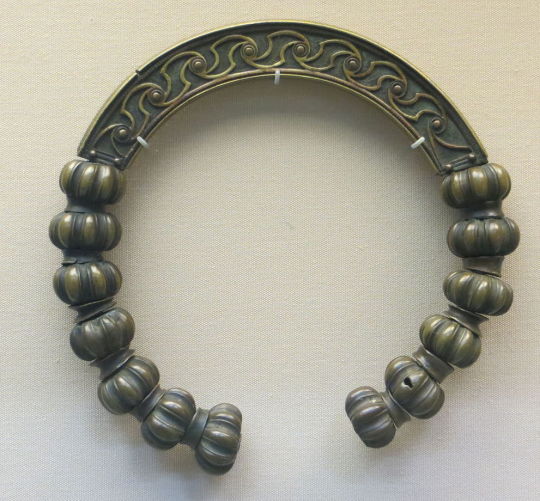
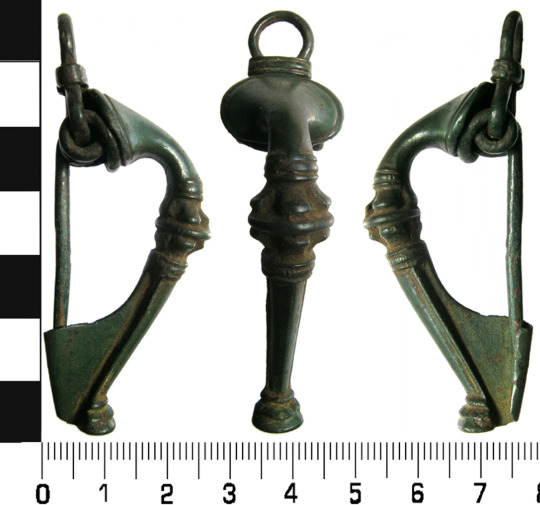
Brass torc from Lochar Moss, Scotland c. 50-200 CE. Romano-British trumpet brooch from Cumbria c. 75-175 CE. image from the Portable Antiquities Scheme.
Trumpet brooches are a Roman Era artifact invented in Britain, that were probably pinned to people's clothing. more info
Although Herodian and Solinus both make dubious claims, there are enough differences between them to indicate that they had 2 separate sources of information, and one was not just parroting the other. This combined with the fact that we have more-reliable sources from later centuries confirming the existence of tattoos in the British Isles makes it probable that there was at least a grain of truth to their claims of tattooing.
There is a common belief that the name Pict originated from the Latin pictus (painted), because the Picts had 'painted' or tattooed bodies. The Romans first used the name Pict to refer to inhabitants of Britain in 297 CE (Ware 2021), but the first mention of Pictish tattoos came in 402 CE (Carr 2005), and the first explicit statement that the name Pict was derived from the Picts' tattooed bodies came from Isidore of Seville c. 600 CE (MacQuarrie 1997). Unless someone can find an earlier source for this alleged etymology than Isidore, I am extremely skeptical of it.
Summary of the written evidence:
Some time between c. 79 CE (Pliny the Elder) and c. 208 CE (Herodian of Antioch) the practice of body art in Great Britain changed from staining or painting the skin to tattooing. Third century Celtic Briton tattoo designs depicted animals. Pictish tattoos are first mentioned in the 5th century.
The earliest mention of Irish tattoos comes from Isidore of Seville in the early 6th c., but since it seems to have been a pre-Christian practice, it likely started earlier. Irish tattoos of the 8-9th centuries were placed on the area around the eye and on the legs. They were a bluish color. The 8th c. Anglo-Saxons also had tattoos.
Tattooing in Ireland probably ended by the early 10th c., possibly because of Christian condemnation. Exactly when tattooing ended in Great Britain is unclear, but in the 12th c., William of Malmesbury describes it as a thing of the past (MacQuarrie 1997). None of these sources give much detail as to what the tattoos looked like.
The Archaeology of Insular Ink:
In spite of the fact that tattooing was a longer-lasting, more wide-spread practice in the British Isles than body painting, there is less archaeological evidence for it. This may be because the common tools used for tattooing, needles or blades for puncturing the skin, pigments to make the ink, and dishes to hold the ink, all had other common uses in the Middle Ages that could make an archaeologist overlook their use in tattooing. The same needle that was used to sew a tunic could also have been used to tattoo a leg (Carr 2005). A group of small, toothed bronze plates from a Romano-British site at Chalton, Hampshire might have been tattoo chisels (Carr 2005) or they might have been used to make stitching holes in leather (Cunliffe 1977).
Although the pigment used to make tattoos may be difficult to identify at archaeological sites, other lines of evidence might give us an idea of what it was. Although the written sources tell us that Irish tattoos were blue, the popular modern belief that woad was the source of the tattoo pigment is, in my opinion, extremely unlikely for a couple of reasons:
1) Blue pigment from woad doesn't seem to work as tattoo ink. The modern tattoo artists who have tried to use it have found that it burns out of the person's skin, leaving a scar with no trace of blue in it (Lambert 2004).
2) None of the historical sources actually mention tattooing with woad. Julius Cesar and Pliny the Elder mention something that might have been woad, but they were talking about body paint, not tattoos. (see previous post) Isidore of Seville claimed that the Picts were tattooing themselves with "juices squeezed from native plants", but even assuming that Isidore is a reliable source, you can't get blue from woad by just squeezing the juice out of it. In order to get blue out of woad, you have to first steep the leaves, then discard the leaves and add a base like ammonia to the vat (Carr 2005). The resulting dye vat is not something any knowledgeable person would describe as plant juice, so either Isidore had no idea what he was talking about, or he is talking about something other than blue pigment from woad.
In my opinion, the most likely pigment for early Irish and British tattoos is charcoal. Early tattoos found on mummies from Europe and Siberia all contain charcoal and no other colored pigment. These tattoos range in date from c. 3300 BCE (Ötzi the Iceman) to c. 300 CE (Oglakhty grave 4) (Samadelli et al 2015, Pankova 2013).
Despite the fact that charcoal is black, it tends to look blueish when used in tattoos (Pankova 2013). Even modern black ink tattoos that use carbon black pigment (which is effectively a purer form of charcoal) tend to look increasingly blue as they age.
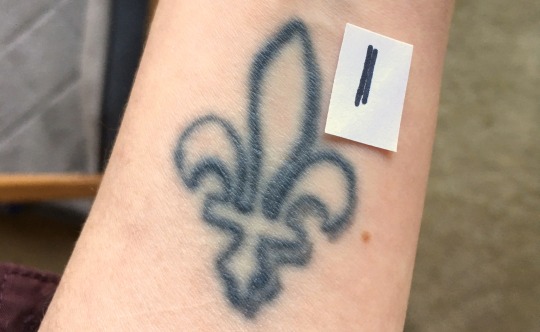
A 17-year-old tattoo in carbon black ink photographed with a swatch of black Sharpie on white printer paper.
The fact that charcoal-based tattoo inks continue to be used today, more than 5,000 years after the first charcoal tattoo was given, shows that charcoal is an effective, relatively safe tattoo pigment, unlike woad. Additionally, charcoal can be easily produced with wood fires, meaning it would have been a readily available material for tattoo artists in the early medieval British Isles. We would need more direct evidence, like a tattooed body from the British Isles, to confirm its use though.
As of June 2024, there have been at least 279 bog bodies* found in the British Isles (Ó Floinn 1995, Turner 1995, Cowie, Picken, Wallace 2011, Giles 2020, BBC 2024), a handful of which have made it into modern museum collections. Unfortunately, tattoos have not been found on any of them. (We don't have a full scientific analysis for the 2023 Bellaghy find yet though.)
*This number includes some finds from fens. It does not include the Cladh Hallan composite mummies.
Tattoos in period art?
It has been suggested that the man fight a beast on Book of Kells f. 130r may be naked and covered in tattoos (MacQuarrie 1997). However, Dress in Ireland author Mairead Dunlevy interprets this illustration as a man wearing a jacket and trews (Dunlevy 1989). Looking at some of the other figures in the Book of Kells, I agree with Dunlevy. F. 97v shows the same long, fitted sleeves and round neckline. F. 292r has long, fitted leg coverings, presumably trews, and also long sleeves. The interlace and dot motifs on f. 130r's legs may be embroidery. Embroidered garments were a status symbol in early medieval Ireland (Dunlevy 1989).
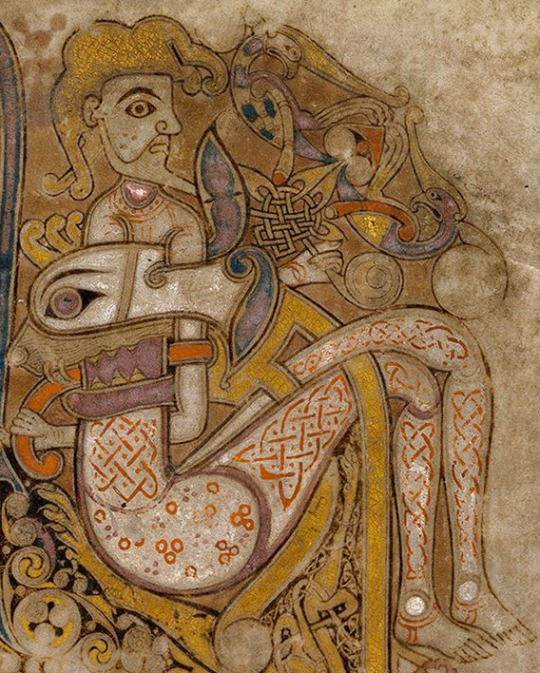
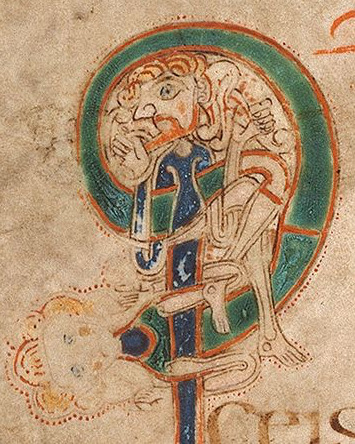
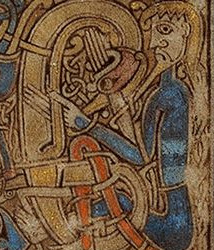
Left to right: Book of Kells folios 130r, 97v, 292r
A couple of sculptures in County Fermanagh might sport depictions of Irish tattoos. The first, known as the Bishop stone, is in the Killadeas cemetery. It features a carved head with 2 marks on the left side of the face, a double line beside the mouth and a single line below the eye. These lines may represent tattoos.
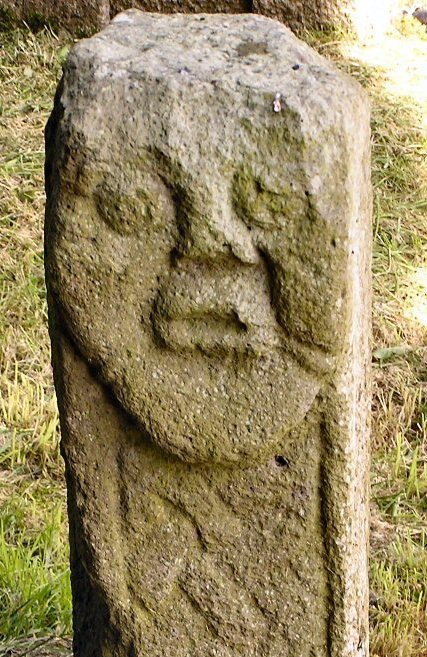
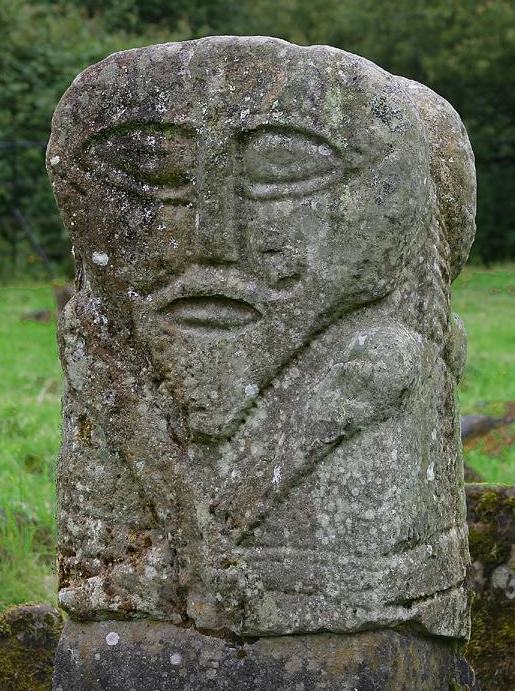
The second sculpture is the Janus figure on Boa Island. (So named because it has 2 faces; it's not Roman.) It has marks under the right eye and extending from the corner of the left eye that may be tattoos.
I cannot find a definitive date for the Bishop stone head, but it bears a strong resemblance to the nearby White Island church figures. The White Island figures are stylistically dated to the 9th-10th centuries and may come from a church that was destroyed by Vikings in 837 CE (Halpin and Newman 2006, Lowry-Corry 1959). The Janus figure is believed to be Iron Age or early medieval (Halpin and Newman 2006).
Conclusions:
Despite the fact that tattooing as a custom in the British Isles lasted for more than 500 years and was practiced by at least 3 different cultures, written sources remain our only solid evidence for it. With only a dozen sources, some of which probably copied each other, to cover this time span, there are huge gaps in our knowledge. The 4th century Picts may not have had the same tattoo designs, placements or reasons for getting tattooed as the 8th c. Irish or Anglo-Saxons. These sources only give us fragments of information on who got tattooed, where the tattoos were placed, what they looked like, how the tattoos were done, and why people got tattooed. Further complicating our limited information is the fact that most of the text sources come from foreigners and/or people who were prejudiced against tattooing, which calls their accuracy into question.
'The Cauldron of Posey' is one source that provides some detail while not showing prejudice against tattoos. The author of the poem was probably Christian, but the poem appears to have been written at a time when Pagan practices were still tolerated in Ireland. I have a complete translation of the poem along with a longer discussion of religious elements here.
Leave me a tip?
Bibliography:
BBC (2024). Bellaghy bog body: Human remains are 2,000 years old https://www.bbc.com/news/uk-northern-ireland-68092307
Breatnach, L. (1981). The Cauldron of Poesy. Ériu, 32(1981), 45-93. https://www.jstor.org/stable/30007454
Carey, J. (1997). The Three Things Required of a Poet. Ériu, 48(1997), 41-58. https://www.jstor.org/stable/30007956
Carr, Gillian. (2005). Woad, Tattooing and Identity in Later Iron Age and Early Roman Britain. Oxford Journal of Archaeology 24(3), 273–292. https://doi.org/10.1111/j.1468-0092.2005.00236.x
Cowie, T., Pickin, J. and Wallace, T. (2011). Bog bodies from Scotland: old finds, new records. Journal of Wetland Archaeology 10(1): 1–45.
Cunliffe, B. (1977) The Romano-British Village at Chalton, Hants. Proceedings of the Hampshire Field Club and Archaeological Society, 33(1977), 45-67.
Dunlevy, Mairead (1989). Dress in Ireland. B. T. Batsford LTD, London.
eDIL s.v. crechad https://dil.ie/12794
Giles, Melanie. (2020). Bog Bodies Face to face with the past. Manchester University Press, Manchester. https://library.oapen.org/viewer/web/viewer.html?file=/bitstream/handle/20.500.12657/46717/9781526150196_fullhl.pdf?sequence=1&isAllowed=y
Halpin, A., Newman, C. (2006). Ireland: An Oxford Archaeological Guide to Sites from Earliest Times to AD 1600. Oxford University Press, Oxford. https://archive.org/details/irelandoxfordarc0000halp/page/n3/mode/2up
Hoecherl, M. (2016). Controlling Colours: Function and Meaning of Colour in the British Iron Age. Archaeopress Publishing LTD, Oxford. https://www.google.com/books/edition/Controlling_Colours/WRteEAAAQBAJ?hl=en&gbpv=0
Lambert, S. K. (2004). The Problem of the Woad. Dunsgathan.net. https://dunsgathan.net/essays/woad.htm
Lowry-Corry, D. (1959). A Newly Discovered Statue at the Church on White Island, County Fermanagh. Ulster Journal of Archaeology, 22(1959), 59-66. https://www.jstor.org/stable/20567530
MacQuarrie, Charles. (1997). Insular Celtic tattooing: History, myth and metaphor. Etudes Celtiques, 33, 159-189. https://doi.org/10.3406/ecelt.1997.2117
McManus, D. (1988). Irish Letter-Names and Their Kennings. Ériu, 39(1988), 127-168. https://www.jstor.org/stable/30024135
Ó Floinn, R. (1995). Recent research into Irish bog bodies. In R. C. Turner and R. G. Scaife (eds) Bog Bodies: New Discoveries and New Perspectives (p. 137–45). British Museum Press, London. ISBN: 9780714123059
Pankova, S. (2013). One More Culture with Ancient Tattoo Tradition in Southern Siberia: Tattoos on a Mummy from the Oglakhty Burial Ground, 3rd-4th century AD. Zurich Studies in Archaeology, 9(2013), 75-86.
Samadelli, M., Melisc, M., Miccolic, M., Vigld, E.E., Zinka, A.R. (2015). Complete mapping of the tattoos of the 5300-year-old Tyrolean Iceman. Journal of Cultural Heritage, 16(2015), 753–758.
Story, Joanna (1995). Charlemagne and Northumbria : the in
fluence of Francia on Northumbrian politics in the later eighth and early ninth centuries. [Doctoral Thesis]. Durham University. http://etheses.dur.ac.uk/1460/
Szacillo, J. (2012). Irish hagiography and its dating: a study of the O'Donohue group of Irish saints' lives. [Doctoral Thesis]. Queen's University Belfast.
Turner, R.C. (1995). Resent Research into British Bog Bodies. In R. C. Turner and R. G. Scaife (eds) Bog Bodies: New Discoveries and New Perspectives (p. 221–34). British Museum Press, London. ISBN: 9780714123059
Ware, C. (2021). A Literary Commentary on Panegyrici Latini VI(7) An Oration Delivered Before the Emperor Constantine in Trier, ca. AD 310. Cambridge University Press, Cambridge. https://www.google.com/books/edition/A_Literary_Commentary_on_Panegyrici_Lati/oEwMEAAAQBAJ?hl=en&gbpv=0
#early medieval#roman era#pict#tattoos#ancient celts#apologies to people who wanted a shorter post#archaeology#art#anecdotes and observations#statutes and laws#irish history#gaelic ireland#medieval ireland#anglo saxon#insular celts#romano british
112 notes
·
View notes
Text

Bartolomeo Neroni (known as il Riccio), ca. 1505/15?-1571
Claudia Quinta (Confidence), mid 16th century, tempera, 74.3x45.7 cm
Victoria and Albert Museum Inv. 426-1869
Literary references: Ovid, Fasti, iv.225-344 Livy, Ab urbe condita libri xxix.14.5-14 Pliny the Elder, Naturalis historia vii.34-120 Solinus, Collectanea rerum memorabilium I.126
20 notes
·
View notes
Text

Note: Fic reboot, placeholder post. Watch this space.
Ashes of Empires - Clerith Edition
We wonder, and some Hunter may express wonder like ours, when thro' the wilderness where London stood, holding the Wolf in chase, he meets some fragment huge, and stops to guess what powerful but unrecorded race once dwelt in that annihilated place.
—Horace Smith, 'Ozymandias'
Chapter 1 In the Wilderness
And in a single moment, it was done. The Lifestream receded, and the last of the light faded from the sky. The great calamity that had threatened their world was no more, vanishing in one last, blinding burst of energy, leaving only a shower of particles in its wake, drifting through the night sky. Where there had been chaos mere moments before, silence now reigned. The Avalanche members gathered on the Highwind's bridge looked to one another, half in disbelief, as they realised the significance of what they had just witnessed. It was over. Their long struggle had finally ended.
In the days that followed, they occupied themselves with aiding the survivors of the Meteorfall incident, joining in the rescue operations taking place throughout the remains of the once-great city of Midgar. Then came the reconstruction, during which time due remembrance of the fallen was given, followed by a celebration of their victory and survival.
Then, little by little, their various obligations forced them to return to their prior lives. Despite great reluctance on everyone's part to disband the group, they all knew that this eventuality could not be delayed forever. In the end, they went their separate ways. And the world kept on turning.
But the roots of their struggle ran far deeper than any of them ever suspected...
A year had lapsed, and most members of the old Avalanche crew had settled down, easing into the roles required of them, with some adjusting to the changes better than others, as a new world emerged from the ashes of the old one.
Despite his initial reservations, Vincent Valentine had elected to return to Nibelheim to retake the old Shinra manor. At the outset of his venture, he had questioned whether this task was worth undertaking at all, whether it was even a good idea to return here, to the birthplace of so many nightmares for himself and the world alike. In the end, he deemed his mission unavoidable, an unfinished duty that fell to him alone. There was no telling what horrors the late Hojo had left in his wake. And thus he set about cleansing the old manor house, stamping out the last traces of his tormentor's deranged experiments.
The days following his arrival were spent purging the manor of its lingering wraiths, a cathartic enterprise, and one that kept his mind busy; a literal approach to exorcising his demons, figurative and real alike. He took care to be thorough, scouring the infamous manor of its roving abominations until not a single one remained. With his reckoning completed and his new lodgings thus secured, he began to delve into the basement laboratory's voluminous library, sifting through its scientific collectanea, more for the sake of satisfying his own curiosity than any practical concerns.
And so he gradually began to settle down in the old Shinra manor, having made it habitable once more. The countryside's seclusion suited him. The mansion was not so remote from human civilization that it made acquiring provisions difficult, but still far enough removed that few visitors troubled him. Shortly before his own arrival, a group of displaced people from the eastern continent had come across the facsimile of old Nibelheim, now abandoned, and resettled the ghost town. The new inhabitants quickly made the town their own, to live and work in, with little idea of its sordid past. They kept away from the brooding mansion at the edge of town, paying no heed to the solitary figure that could sometimes be glimpsed watching over the town from the upstairs window. Few concerned themselves with who lived there, if anyone, and most were simply too preoccupied with their own lives to care. Observing life continuing in this manner, Vincent reflected upon how quickly the world forgot. Perhaps, he thought, it was for the better.
Then, late one night, near the end of the fall, he found himself roused from his state of torpor by a heavy knocking at the door, as that of someone beating against it with the last of their strength. He set aside the heavy tome resting in his lap and got up from his chair to see who it was. Shifting back the heavy door, he was surprised to find Tifa Lockheart standing outside in the torrential rain, shivering from the autumn cold, looking tired and forlorn, her eyes red and swollen. She spoke up before he had a chance to ask what she was doing out there all by herself, the question half-formed on his lips as she struggled to speak in between laboured breaths.
"He's gone."
There was no need for her to explain further. He knew who she meant. He wrenched the double doors open, urging her to come in from the rain. She took half a step before faltering. He caught her, enfolding her in his arms as she wept, her body half-hidden by his thick cloak.
He served the two of them supper, a quiet and somewhat awkward affair, given how unused he was to having company. They exchanged few words, though the look on Tifa's face told him she was grateful for his hospitality.
Once their meal was concluded, he urged her to rest, after what had no doubt been a harrowing journey. He fashioned her with a comfortable bed in one of the guest bedrooms, and it was not long before she was asleep, drifting off to the sound of rain beating against the glass.
These things were, he knew, mere salve for her trials and tribulations. With little else to do, he pondered the cause of her distress. She and Cloud had parted ways. The exact nature of their falling out eluded him, though it was not hard to guess that it had been a bitter one. It was difficult for him to understand how the two of them had failed to find happiness together after their victory over Sephiroth and Jenova. He had watched from a distance as their relationship slowly disintegrated, as what seemed a foregone conclusion never came together the way everyone expected it would.
Her anguish, Vincent realised, was not merely the result of her own frustrated desires, but the way in which she remained powerless to stop her childhood friend from sabotaging himself out of misguided guilt. From his vantage point as an outsider, their relationship always seemed a case of 'too little, too late'. Perhaps it was never meant to be, he thought. But that did not make their parting any easier.
He stood in the doorway, watching over Tifa as she slumbered,
tracing the delicate outline of her face by the warm glow of the flickering candlelight, wishing there was something more he could do.
Cloud Strife marched on through the snow field, a solitary figure passing through the wintry desolation of the frozen north. He drew up the collar of his shirt, covering the lower half of his face to guard against the bitter wind and heavy snowfall as they threatened to coalesce into a full-fledged blizzard. Deviating from his current path, he pressed on, seeking shelter in the nearby forest as the weather grew more severe.
The wind died away, little by little, as he passed between the thick columns of birch and oak, ancient titans older than man, towering over the winter landscape, casting long shadows. Reaching the first visible clearing, he pulled his collar down again, inhaling the cool, crisp air, now that he was out of the worst of the storm, no longer assailed by cold blasts of wind that threatened to snatch one's breath away.
As he moved towards the centre of the glade, he became aware of some unseen multitude mobilising in the shadows, stalking him. He could hear the faint sounds of branches being trampled, the nearly imperceptible patter of footsteps in the snow. Then, a low howling as his pursuers drew near. He turned to see a large grey wolf emerging from behind the trees. Then another. A third. Before long, the whole pack had revealed itself. Glancing from one side of the clearing to the other only confirmed his suspicion; he was surrounded, caught in their ambush.
The wolves stood their ground, encircling him, cutting off every possible escape route. They observed the human in their midst with a guarded demeanour, as though waiting for something. Cloud realised his error. He was trespassing on their territory, and the wolves, clearly angered by such a brazen violation of the sanctity of their domain, had rallied against him, though it was not clear whether they intended him harm, or if they were simply trying to scare off the intruder that had wandered into their sanctum. Adopting a defensive stance, he slowly reached for his blade, drawing it a few inches from its sheath, while holding up his free hand in a propitiatory gesture, hoping to communicate to them that he meant no disrespect, and that he merely wished to pass through.
"Easy.."
His eyes darted from one wolf to the next, regarding each in turn, watching for signs of movement as he backed away, taking slow, tentative steps towards the edge of the clearing. The wolves crouched low, bending their ears back even as they bared their teeth, their expressions a blend of aggression and fear. It was doubtful that they encountered many humans, being so far removed from any of their settlements, and their behaviour betrayed an uncertainty of whether to attack the unwelcome visitor or let him go.
Though they remained tense, their growling began to quiet down as he moved away from the clearing, watching them carefully as he retreated. Before he had made it halfway from the centre, however, an old wolf, the alpha male of the pack, emerged from the shadows. The wolf, a prideful and great brute, whose scarred visage spoke of untold trials faced during the years of guiding and protecting its pack, fixed the human interloper with a murderous gaze. It snarled at him, its anger provoking the other wolves out of their state of hesitation. They began to bark and howl, as well, their clamour rising in a gradual crescendo as they worked themselves into a hunting frenzy.
Cloud froze in place, turning as the alpha wolf charged at him. He drew, dodged, and cut, all in a single, practised motion as the wolf leapt up at him. The tip of his blade cleaved the side of the wolf's torso, and the great beast fell heavy to the ground. Staggered, he held his blade up, hands trembling from the lingering reverberation of the blow. He drew a terse breath as he looked to the other wolves, who remained in place, watching the confrontation with dismay, uncertain of whether to fight or flee. For a long moment, neither he nor they made any move, as if waiting to see whose nerve would give out first.
Their stand-off was interrupted by a low growl, coming from the twitching body of the head wolf. Cloud looked over his shoulder to see the beast, which he had assumed dead, slowly rising back to its feet, all but ignoring the fatal wound he had dealt it. The great wolf shook with pain and rage, its unchecked, maniacal fury twisting its face into a demoniac mask.
Before he knew what was happening, the wolf charged him a second time, bounding through the snow with alarming speed. Bracing himself, he swung again as it jumped up. This time, however, he missed, and the wolf came down hard, overpowering him with its bulk, forcing the sword from his hand as it drove him down to the ground. His head smashed against the cold earth, the force of the impact leaving his ears ringing and his vision blurred.
In his hazy mental state, he was vaguely aware of the other wolves closing in, galvanised by their leader's charge. They circled the two combatants, howling and chanting, spurring on the monstrous, frantic thing towering over him. He shook off his disorientation, dodging in time to avoid a fatal bite. His aggressor, however, gave no quarter, pinning him to the forest floor as it continued its relentless attack. Cloud seized the frenzied beast by the throat, holding the great wolf at bay as it snapped at him, aiming for his face and neck with its powerful jaws.
Searching for some way to counter the wolf's attacks, he spotted his blade lying in the snow, having slipped from his hands as he fell. He made to reach for it, but the wolf's erratic movements made it impossible for him to release his grip on its neck without risking letting it overpower him. He was left no other choice, however. The other wolves were drawing nearer still, and his assailant's attacks were growing more manic and unpredictable. The wolf simply would not let up, having been driven out of its mind by pain and anger, raging at him hysterically, with no care for its own safety, as though wishing to damn its mortal enemy with its dying breath.
With great effort, he managed to deflect the wolf's attacks, pushing its head to the side with one hand, freeing up the other to reach for his weapon. He extended his arm as far as he could without losing his grip on the wolf, and his fingers brushed against the hilt, but it was too far away for him to take hold of it. The wolf, meanwhile, managed to break free from his hold and threatened to overwhelm him, forcing him to abandon his sword in the snow to hold it off with both hands again.
Frustrated, he gave up on trying to reclaim his weapon. There was only one option left to him, one that had slipped his mind in the sheer chaos of the moment. Still keeping his attacker at bay, he reached for the knife concealed underneath his loose sleeve, taking the hilt with an underhand grip. Tearing the knife free from its scabbard, he plunged the blade deep into the side of the wolf's neck.
To his surprise, the wolf, though temporarily fazed, continued to press, biting and snapping away in spite of the critical wound it had just received. Gritting his teeth, Cloud wrenched the knife back out, sending a spray of blood gushing from the laceration, before stabbing repeatedly against the wolf's head and neck, attacking wildly in order to stymie his enemy's onslaught.
The final blow struck the wolf's head, piercing its skull, but even this was not enough to discourage the enraged beast's aggression, though he had finally managed to force it to a temporary halt. He gripped the knife more firmly, forcing the blade deeper, inch by painful inch, while the wolf continued its attempts to sink its teeth into his flesh.
Despite the great beast's unnatural vigour, he could see the light in its eyes begin to fade, its mental faculties slowly degrading as the cold steel dug into its grey matter. The thing began to tremble, yet it fought on, even as the knife robbed it of its cognition and strength. The wolf's movements finally began to slow, however, its attacks reduced to an ineffectual gumming, and its roar faded to a pitiable whimper. It stared down at him with discoloured eyes, half-blind from the blood pooling beneath their surface. At last, the wolf surrendered its struggle. Its head sank down to the ground, and it lay there, unmoving, breathing its last.
Exhaling heavily, Cloud loosed the knife from the wolf's head again, rolling away the heavy carcass as he forced himself back to his feet. He snatched up his blade with his free hand, drawing a ragged breath as he watched the other wolves for their reaction, bracing himself for a second attack with his sword in one hand and the knife in the other. The great wolf's lifeblood dripped from the tip of the latter weapon, as well as his clothing and face, colouring the snow beneath a deep crimson. The rest of the pack watched him with newfound apprehension, remaining perfectly still, uncertain of what to do. None of them, it seemed, had suspected this outcome. They looked to one another for a moment before dispersing, vanishing into the woods as quickly as they had appeared, leaving him by himself in the clearing once again. Relaxing his guard at last, he breathed a sigh of relief.
A few moments later, he found himself kneeling at a small brook, the outlet of some subnivean stream further away, washing the rivulets of blood from his face with the freezing water. He then picked up a handful of snow from the ground, cleaning his weapons and clothing as best he could. As he worked, he felt something tugging at his pants leg, as if some small creature were nipping at his heels. Surprised, he turned and stood to see a wolf cub, no more than two months old. The cub, having got his attention, stared back up at him with earnest curiosity, panting and wagging its tail.
The cub had strayed from the rest of the pack by accident, it seemed. It appeared to be unaware of what had transpired only moments earlier, or it was possible that its curiosity about the strange visitor in the woods had overpowered its sense of danger. In either case, it continued to watch him with interest, yapping a couple of times, then tilting its head, its manner friendly and unassuming. Innocent.
Cloud looked back down at the whelp with a wistful expression on his face. No doubt killing the old wolf would leave the cub's pack more vulnerable to predation, and less able to fend for themselves in the harsh winter. Though it had done its best to take his own life, he couldn't help but feel a vague regret over slaying the great beast. He had been trespassing on their territory unknowingly, after all.
He knelt down, reaching out to touch the wolf cub's head, moving slowly to see if it would object. Seeing that it did not seem to mind, he stroked it briefly, patting its head. The pup responded favourably to the gesture, leaning into his touch, whimpering softly as he ran his hand over its lightly mottled coat.
"I'm sorry."
He looked up again as he heard a barking in the distance, emanating from the woods. The cub, too, turned its attention to the older wolf, perhaps its mother, watching the two of them from a nearby hillock clothed in thick firs. Cloud rose to his feet, growing alert again in anticipation of a second attack. The parent wolf merely stood there, however, waiting while the cub darted back to its side. It turned away, exchanging one last glance with the human invader, as if to bid him leave in peace. Their territory thus demarcated, the wolves departed for good.
Peering at his reflection in the water, Cloud noticed a thin scar, almost imperceptible, running down his cheek as a result of the earlier encounter. Such attacks, he knew, were uncommon, apt only to occur in the deep of the wilderness, far from any settlement, where the animals remained unaccustomed to human depredation. The whole affair was a lamentable one. But it would not do to dwell on such things for long, he reminded himself. Here was a world more savage, more primal, far removed from the pretensions of civil society. Such extreme isolation should have repelled him, as it did other people, who valued their security above all else, but to his surprise, he found that the solitude of the wild and its honest savagery suited him better than the clamorous cities of the world, where would have been no less ill at ease. Here, at least, there was no pretence of innocence. Only predators, prey, and the thin line dividing the former from the latter. And, as he had learned today, a moment's indiscretion could quickly change on which side of that line one stood.
With this in mind, he took off once more, bracing himself for the journey that lay ahead. The Northern Crater awaited him, and he had places to visit along the way, few of which were any more hospitable than his current whereabouts.
Yuffie Kisaragi slipped inside her room, having dismissed her bodyguard and retinue of servants for as long as she felt she could get away with without rousing suspicion. She slid the door shut, then seated herself on the floor in front of the small vanity situated near the entrance, adopting the customary posture for formal occasions purely out of habit, even though she was all by herself.
She stared at her reflection for a long moment. Nearly two years had passed since Avalanche's dissolution, and her transformation could not have been more radical, on the outside, at least. She no longer recognised the ghost in the mirror, this pale imitation of the energetic young girl who had travelled half-way across the world on her own, before joining up with the band of resistance fighters on a whim.
She had grown her hair out, painstakingly grooming and layering it, wearing it in the style of traditional Wutaian court fashion in an attempt to strike a more 'lady-like' figure, in accordance with her father's wishes. Her face, too, evinced a number of outward changes, caked as it was with heavy white make-up, coupled with subtle red and black accents around the eyes and a hint of blush applied to her cheeks. In all, she resembled a porcelain doll more than a human being, a model of perfect manner and grace, docile and restrained, nothing like her old self.
This change was not the result of coercion on her father's part, or anyone else's, for that matter. Despite her profound disdain for authority and tradition, she had forced herself to undertake this alteration as something she deemed necessary as part of Wutai's healing process. She understood that now that Shinra was gone, it was, as her father liked to remind her, a time of rebuilding, not of conflict, and that called for a different kind of sacrifice. She had known the day was coming when she had to 'grow up'; that was, to give up her natural inclination to eschew her duties towards her country in favour of running off to explore the far corners of the world. It was unavoidable. She simply had not expected it to come so soon.
Her refusal to accept this duty had played a large part in her running away from home the first time, along with her constant squabbling with her father over that very matter. But as much as she resisted the notion, she knew Godo was right. So she played her part, assuming her role as his aide and right hand on the council, suppressing her naturally effusive personality in order to blend in during their various political engagements inside and outside the country. Her new act was little more than a social mask, of course, worn for the same reason as her sudden change in dress and bearing. That's how it had begun, at least. Now, she was not so sure. That mask was getting to fit a little too well, she thought. A little too closely..
She shifted her position as she regarded the impostor staring back at her. Sitting in this manner had presented her with some difficulty when she first began to attend council meetings along with her father, being that she was nearly allergic to the stifling artifice demanded by such events, and had avoided them for the greater part of her life. As a result, she had never grown accustomed to displaying the decorum and grace that was, by tradition, expected of women of her lineage. In the beginning, she had harboured serious doubts about whether she would be able to master the discipline required to do so. She was not alone in her doubts, as evidenced by the surprised look on everyone's faces when she suddenly decided to set aside her transient and careless approach to life in order to participate in the court's political affairs. It was the first time that she had ever displayed, or, at any rate, feigned, any interest in such matters.
It was no secret, after all, that she preferred the freedom and excitement offered by the other side of her heritage. During her childhood, her father had tolerated her near-obsession with her ninjutsu training, reasoning that it was the only way that she would even sit still for what he viewed as her proper lessons. He had hoped that her enthusiasm for such unbecoming behaviour, as he termed it, would fade away in time, but, much to his growing consternation, her interest never waned. Indeed, it had only gotten worse when she first discovered materia and its various applications in combat. Before long, she had proven herself the foremost of her master's disciples, something that their pride forbade them to admit.
Similarly, the courtiers' doubts about her ability to adjust to court life had served to spur her on, igniting in her the same spirit of defiance that had driven her during her childhood, the only difference between then and now being the activities into which she channelled her energy. Much like before, she was motivated by the intent not to let anyone get the better of her. As exacting as the strictures of Wutai's high society could be, she would be damned if she let its members smugly affirm to themselves the worst that they thought of her by giving up.
Even so, making the requisite changes had been a great struggle for her. Having to partake in ancient rituals and ceremonies, and adopt old and obscure customs for their own sake, something for which she could find no purpose or rational justification other than vague appeals to 'tradition', went against her nature in every way possible. The temptation to say to hell with it all and simply run away again had been overwhelming, and several times she had come close to doing just that. She persevered, however, out of loyalty to her country, if nothing else. In time, the lessons from her childhood, the ones she had done her best to ignore and forget, had come back to her, little by little. By now, she had perfected the act, and had even come to believe it herself at times. She had proven her doubters wrong, deriving a sly satisfaction from doing so. But her little victory had come at a great cost, and she was starting to fear that if she did not break away from the masquerade soon, her true self would be subsumed by the false exterior which she had worked so hard to maintain.
In the end, the choice to undertake all of this effort had been hers, but after nearly two years of pretence, not to mention the hardships and restraint it demanded, she was beginning to question the wisdom of her decision. While it was true that her motherland had recovered to a great extent since Shinra's downfall, and that she had no doubt played an important role in that recovery, Wutai's society remained rigid and unchanging as ever, especially in regards to its implicit enforcement of gender roles and social order. Any attempt on her part to challenge the dominant patriarchy, whether from within or without, seemed destined to failure so long as she remained the only one to openly criticise the otherwise unquestioned conformity that allowed such conditions to persist, long after the rest of the world had done away with them.
It was heartbreaking, watching her country vanishing back into the past, rather than forging ahead towards the future, as she had hoped it would. She was sick of pretending in front of the endless cavalcade of vacuous ministers, politicians and dignitaries, whose only motives, as far as she could tell, were to preserve a retrograde social hierarchy that had long been engineered in their favour. If preserving tradition meant remaining stuck in the past, she wanted no more part in it. And as much as she wanted to help Wutai, she doubted that she could bear the burden much longer if it meant losing herself in the process.
She took another look at herself in the mirror. Her old self was indeed close to disappearing beneath her counterfeit exterior. Even her smile was no longer her own, more closely resembling a grimace than anything else. Breaking away from her reflection, she steeled herself mentally for what was to come next. Her mind was made up. All that was left was to follow through with the act itself.
She reached for a sheet of paper and a brush from the nearby desk, grinding a coarse block of ink into a bowl and mixing it with water before dipping the brush into the fresh mixture. Touching the tip of the brush against the smooth paper, she began to write.
"Dear father,
I'm leaving Wutai. I'd explain the reasons why, but I think we both already know.
With our old enemy removed, our greatest threats now come from within. Perhaps they always have. What Shinra did to us was criminal, but what we keep doing to ourselves may be even worse.
Our empire will be restored. Of this, I have no doubt. Wutai will flourish, with or without me. I see that now. I only wish it could mature sooner. I've tried doing things your way, because I thought I could help make that change from within. But the problem is greater than I could see. Greater than either of us. Things are changing, yes, but not quickly enough. I worry that we will be eternally trapped in the past if we continue to rely blindly upon tradition alone to guide us, and I don't see that changing any time soon.
You are not to blame in this. But I can't keep up this facade any longer. This is not who I am.
Don't look for me. I'm not coming back.
-Yuffie"
She composed her letter in finely-wrought calligraphic script, the end result of countless hours spent in cold classrooms during her childhood, labouring under the watchful eye of her unforgiving tutor, earning a sharp strike on the back of her hand for every malformed character and accidental slip of the brush. She tried her best not to wince as she thought of those times, concentrating instead solely on the act of writing. Once finished, she laid the brush aside, folding the letter and stamping it with the imperial seal.
Having left her message, she turned her attention to her physical appearance. She removed the hairpins and ornaments from her hair, loosening and unweaving the bun into which it had been tied, letting her long locks flow past her shoulders, extending nearly to the small of her back. Gathering them up in one hand, she took a knife from the drawer and pressed it up against them. Hesitating, she glanced up at her reflection for a moment before continuing, slicing through her locks with the sharp blade, breathing a sigh of relief as they came loose. She cast the severed strands aside, the slight regret she felt over discarding them after nearly two years of care and attention outweighed by her relief at having rid herself of such an encumbrance. She then proceeded to wipe away the heavy make-up from her face with a damp cloth, until at last some semblance of the person hidden underneath it all began to emerge.
Her transformative ritual completed, she slowly rose to her feet. Ducking behind the folding screens in the corner of the room, she quickly undressed, leaving her brocaded garments on the floor, before throwing her closet open and rummaging through it, piecing together an outfit by haphazardly picking out whatever clothes she could assemble in under a minute: Boots, stockings, shorts, a black camisole with a floral pattern, and a grey jacket. Thus attired, she knelt down in front of the wall behind the closet, sliding open the hidden compartment where she kept her old collection of weapons: throwing daggers, caltrops, materia, and her combat shuriken.
Unable to locate her old headband, she replaced it with a simpler one, tying it in a hachimaki as she headed for the window at the opposite side of the room. She paused in front of the mirror, trying on a different smile, now that she was free of her self-imposed restraints. Better, if not quite as luminous as her usual, carefree grin. But it would do for now.
As she pushed open the window, she stopped again for a moment, hesitating as the full weight of her decision occurred to her. This was no mere flippancy on her part. She was leaving her home for good, burning every bridge she had spent the last two years building here in the process. Knowing that her own reluctance was the only remaining threshold to be overcome, she was resolved not to abandon anything she might regret leaving behind. After this, there would be no turning back.
She looked over her bedroom one last time, taking in its sparse furnishings. A few hanging scrolls lined the walls, a simple paper lantern in the corner cast a dim glow amidst the shadows, and a small alcove held most of the trinkets she had deemed worth keeping around: folding fans, decorative carvings, and other keepsakes. Nothing out of the ordinary. A nearby shelf displayed an array of animal shapes wrought from folded paper, a hobby she had taken up in order to keep her hands busy and maintain her finger dexterity in lieu of sparring or open combat, neither of which she'd had much cause to engage in since her split with Avalanche.
One object caught her eye as she turned to climb out the window: an old scroll passed down from one generation to another, its inscription a reminder of her bloodline's heritage, drawn from the folk tales of her people:
'Child of Leviathan'
This, too, she would have to leave behind, abandoning the gilded cage for an uncertain future that held no promise of anything for her, save for a vague notion of freedom. In the end, however, she could think of little here that she would miss. There was no more time for second thoughts. She decided that if it was too heavy to carry with her, it wasn't worth worrying about.
Satisfied that she had everything she needed, she vaulted out onto the roof, easing back into the acrobatic bearing that she had all but suspended for the better part of two years. She leaned over the edge, enumerating the potential obstacles in her path, before leaping down to the ground with the aid of the branches of a nearby pine tree. Shouldering her backpack and pulling the hood up over her head, she took care not to be seen by the royal guards stationed around the outer perimeter of the Kisaragi mansion.
The sheer number of soldiers patrolling the area forced her to circle around the floating pavilion opposite the mansion, but eventually she got far enough away from the estate to feel safe to remove the hood once again. Reaching the marketplace, she did her best to blend in with the multitude, which swayed in every which direction, in an effort to escape the scorching heat of summer. Two years ago, she might have been concerned that someone would recognise her as she wandered about freely, but considering how little the outside world had seen of her since those days, there was hardly any for her to fear being called out by a stranger. By the time she had made her way into the bustling thoroughfare at the edge of town, she was just another face in the crowd.
6 notes
·
View notes
Text
six sentence sunday
thinking about work tomorrow is out, obsessing over these two clowns yet again is in
In truth, Heinrix would have been content to sit through the entirety of the Pentimento’s three-volume collectanea of Imperium theology if it meant listening to the melody of her voice; that siren song of unwavering love that had steered him not into the jagged rocks of despair, but instead guided him through the storm of his own heart, into calmer waters new. Heinrix had long forgotten what it meant to be the helmsman of his own fate, the weight of duty upon his shoulders his oldest friend and confidant. It had been hard to glean a spark of hope from the dark recesses of service, hard to carve a future from a life of sacrifice. And yet, she had shown him how; the reins of fate held boldly in her palms, a light within her soul that even the deepest depths of Commorragh had not manage to snuff out. She had warmed his heart and his life with her presence, burning brighter than any of the stars beyond the voidship’s hull. It was here, entangled in her warmth, that Heinrix understood what peace meant.
#chewing on them lovingly this fine sunday evening#WIP it real good#six sentence sunday#x: spiracle#oc: livea von valancius#will i ever finish this WIP or will this WIP finish me
6 notes
·
View notes
Note
boops gale's nose with the tip of his tail. dastardly bugger has a mind of its own!
He'd been busy reading, thank you very much! The Collectanea Rubrum—a riveting find. Nose assaulted, Gale, manual lowered, offers his friend a cursory glance. Lately, he's taken to his company, Wish easing his heartaches as Tara once had, and with that long, swinging tail shivering feline delight? Well, huffing a sigh, he's quite tressym, indeed.
"You've the makings of Tara in you," Gale observes, leaning back to dodge yet another swipe. Fondly, he recalls her rumbling purrs as she slept near his belly, and eyeing Wish's hands, how she kneaded his chest. "Which is particularly flattering praise, to be sure. I struggle to think of any creature as indisputably regarded with the respect she commands. Though, I wonder if I should expect any pigeons from you—or perhaps just as likely, a demand for a scratch." His smile flashes cheekily. "She always did say I've the magic touch."
#MINDHALLOW#ASK.#...TEAM CAT... ? Team... tressym?!#Gale looked at Wish and literally went I'm a cat dad... </3#I love Wish.. I hold him in my palm...
5 notes
·
View notes
Text
“Foxe would delight Henry by showing him a 110-page Latin dossier explaining the ‘true difference between royal and ecclesiastical power’. A momentous document whose scruffy, uninviting appearance belies its significance, it is headed ‘Ex sacris scripturis et authoribus Catholicis’ (‘Compiled from Holy Scriptures and Catholic Authors’) and known today as the ‘Collectanea satis copiosa’ (‘Sufficiently plentiful collections’). Evolving from the ‘King’s Book’ and then marshalling new sources culled from biblical texts, the Church Fathers, the decrees of Church Councils, Roman law, Anglo-Saxon laws and national histories and chronicles, it made the bold argument that the pope was merely the Bishop of Rome. As such, his jurisdiction did not extend beyond his own diocese, whereas the King of England was the ‘Vicar of Christ’ in his kingdom. According to the dossier, Henry’s ‘lawful’ powers were just as ‘imperial’ as those of the early Byzantine emperors, notably Constantine the Great and Justinian, or the Old Testament rulers David and Solomon (Henry’s favourite kings were David and Solomon, and he could quote verbatim from the Old Testament and the Code and Institutes of Justinian). Should he choose to reappropriate his regal powers, he might appoint his own bishops instead of merely nominating candidates to the pope, and he could reform the monasteries. He might then also empower the Archbishop of Canterbury, or else a panel of bishops, to investigate and reach a verdict on his ‘scruples of conscience’, with no appeal allowed. None of this, Foxe argued, would make Henry schismatic like Luther. He would merely be ‘restoring’ to himself legitimate royal rights which, historically, Anglo-Saxon and Norman kings had exercised, and which the papacy had usurped. (Some of the dossier’s claims were true, although their historical contexts could be misunderstood; others were twisted to prove what its compilers wanted the king to believe.) Only Henry II in late 1169 at the height of his quarrel with Archbishop Thomas Becket had dared to make claims like these, and he had been forced to make amends after the appalling scandal of Becket’s murder.”
— John Guy & Julia Fox, Hunting the Falcon: Henry VIII, Anne Boleyn and the Marriage That Shook Europe
5 notes
·
View notes
Text
When finally showed the dossier [Collectanea satis copiosa], Henry loved it, annotating it approvingly in forty-six places with comments such as 'ubi hic?' ('whence does this come?'), 'de illicitis matrimoniis' ('concerning illicit marriages'), and 'bene nota' (note well).
Hunting the Falcon: Henry VIII, Anne Boleyn & the Marriage That Shook Europe, John Guy & Julia Fox
4 notes
·
View notes
Text
Alchemical Marvels: Navigating the Secrets of Collectanea Chemica

Arthur Edward Waite's "Collectanea Chemica" is a captivating exploration into the enigmatic realms of alchemy and hermetic medicine, transcending time to unveil the mystical allure of ancient wisdom. With its rich tapestry of select treatises, this book beckons readers on a mesmerizing journey through the esoteric corridors of the alchemical tradition.
Waite, a distinguished scholar and esotericist, curates a collection that serves as a portal to the profound insights of alchemists and hermetic practitioners. The book’s pages are imbued with the mystique of the past, offering glimpses into the spiritual and transformative pursuits that have echoed through the ages.
The treatises within "Collectanea Chemica" serve as illuminated manuscripts of alchemical philosophy, each unfolding a unique facet of the practitioner's quest for enlightenment. From the Magnum Opus to the pursuit of the Philosopher's Stone, Waite guides readers through the labyrinthine corridors of alchemical thought, where base metals transform into gold, and the elixir of life beckons with promises of immortality.
Waite’s meticulous annotations and commentary provide a guiding light, illuminating the complex symbolism and allegorical language employed by alchemists. His insightful notes bridge the temporal gap, making the esoteric knowledge accessible to modern seekers of wisdom.
The title itself, "Collectanea Chemica," resonates like an incantation, conjuring the very essence of ancient laboratories and the alchemist's pursuit of the arcane. It beckons readers to delve into the alchemical opus, enticing them with promises of arcane knowledge and the potential for profound transformation.
In essence, "Collectanea Chemica" is not merely a book but a transcendental guide—an alchemical roadmap inviting intrepid minds to decipher the secrets of hermetic wisdom. Arthur Edward Waite, with his scholarly finesse, ensures that the alchemical fire within these pages continues to burn, casting its luminous glow on those who dare to embark on this intellectual and spiritual odyssey.
Arthur Edward Waite's "Collectanea Chemica" is available in Amazon in paperback 11.99$ and hardcover 18.99$ editions.
Number of pages: 138
Language: English
Rating: 9/10
Link of the book!
Review By: King's Cat
#Alchemy#Hermetic Medicine#Arthur Edward Waite#Magnum Opus#Philosopher's Stone#Esoteric Wisdom#Mystical Tradition#Alchemical Treatises#Spiritual Transformation#Occult Knowledge#Elixir of Life#Transmutation#Symbolism#Ancient Wisdom#Illuminated Manuscripts#Hermeticism#Alchemical Philosophy#Secret Knowledge#Metaphysical Exploration#Alchemical Symbolism#Spiritual Alchemy#Mystical Illumination#Philosophical Gold#Transcendental Insights#Occult Tradition#Esoteric Manuscripts#Alchemical Secrets#Symbolic Language#Immortality Quest
6 notes
·
View notes
Text
Alchemical Marvels: Navigating the Secrets of Collectanea Chemica
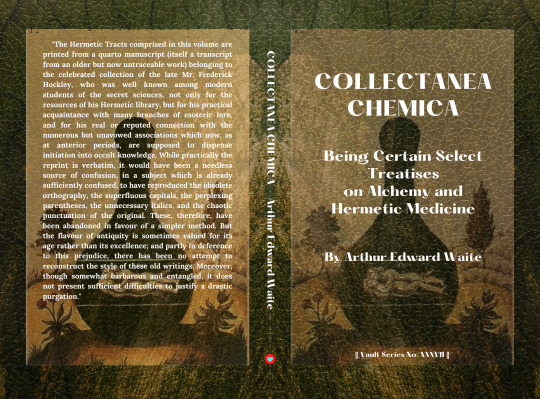
Arthur Edward Waite's "Collectanea Chemica" is a captivating exploration into the enigmatic realms of alchemy and hermetic medicine, transcending time to unveil the mystical allure of ancient wisdom. With its rich tapestry of select treatises, this book beckons readers on a mesmerizing journey through the esoteric corridors of the alchemical tradition.
Waite, a distinguished scholar and esotericist, curates a collection that serves as a portal to the profound insights of alchemists and hermetic practitioners. The book’s pages are imbued with the mystique of the past, offering glimpses into the spiritual and transformative pursuits that have echoed through the ages.
The treatises within "Collectanea Chemica" serve as illuminated manuscripts of alchemical philosophy, each unfolding a unique facet of the practitioner's quest for enlightenment. From the Magnum Opus to the pursuit of the Philosopher's Stone, Waite guides readers through the labyrinthine corridors of alchemical thought, where base metals transform into gold, and the elixir of life beckons with promises of immortality.
Waite’s meticulous annotations and commentary provide a guiding light, illuminating the complex symbolism and allegorical language employed by alchemists. His insightful notes bridge the temporal gap, making the esoteric knowledge accessible to modern seekers of wisdom.
The title itself, "Collectanea Chemica," resonates like an incantation, conjuring the very essence of ancient laboratories and the alchemist's pursuit of the arcane. It beckons readers to delve into the alchemical opus, enticing them with promises of arcane knowledge and the potential for profound transformation.
In essence, "Collectanea Chemica" is not merely a book but a transcendental guide—an alchemical roadmap inviting intrepid minds to decipher the secrets of hermetic wisdom. Arthur Edward Waite, with his scholarly finesse, ensures that the alchemical fire within these pages continues to burn, casting its luminous glow on those who dare to embark on this intellectual and spiritual odyssey.
Arthur Edward Waite's "Collectanea Chemica" is available in Amazon in paperback 11.99$ and hardcover 18.99$ editions.
Number of pages: 138
Language: English
Rating: 9/10
Link of the book!
Review By: King's Cat
#Alchemy#Hermetic Medicine#Arthur Edward Waite#Magnum Opus#Philosopher's Stone#Esoteric Wisdom#Mystical Tradition#Alchemical Treatises#Spiritual Transformation#Occult Knowledge#Elixir of Life#Transmutation#Symbolism#Ancient Wisdom#Illuminated Manuscripts#Hermeticism#Alchemical Philosophy#Secret Knowledge#Metaphysical Exploration#Alchemical Symbolism#Spiritual Alchemy#Mystical Illumination#Philosophical Gold#Transcendental Insights#Occult Tradition#Esoteric Manuscripts#Alchemical Secrets#Symbolic Language#Immortality Quest
3 notes
·
View notes
Text
Winding Up the Week #394
An end of week recap “Learn what is to be taken seriously and laugh at the rest.” – Herman Hesse I thank you for your cheerful forbearance while I gallivanted off to York to meet my half-sister and her wife for the first time ever. Our get-together went wonderfully (thank you so much to those who wished me well), and I return to you with these varied collectanea of literary goings-on. As ever,…
#20 Books of Christmas Reading Challenge#Alexandra Plakias#Elvira Blanco#Herman Hesse#Holly Hogan#Jessica Au#Jon Fosse#Nonfiction November#Norway in November#Novellas in November#Premee Mohamed#Rachel Cooke#Samantha Harvey#Stella Gibbons#Virago Press
0 notes
Text
Marvel Atlas
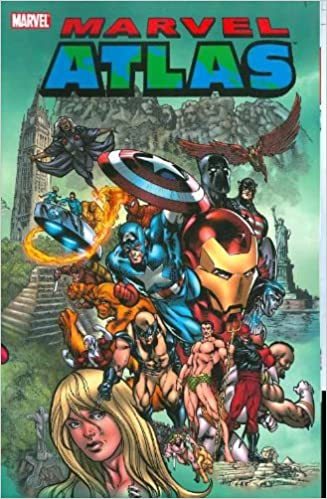
✨ From the towering skyscrapers of New York City to the mystical realms of Asgard, the MARVEL Atlas is a treasure trove of information about the diverse lands that make up the Marvel Universe. With intricate maps, vibrant illustrations, and in-depth descriptions, it's an essential companion for any Marvel fan.
However, as we explore the pages of the Atlas, one notable absence stands out – the lack of information about Iran. Despite the Atlas's meticulous attention to detail in depicting lands from around the world, Iran's rich history, culture, and geography are notably absent from its pages.
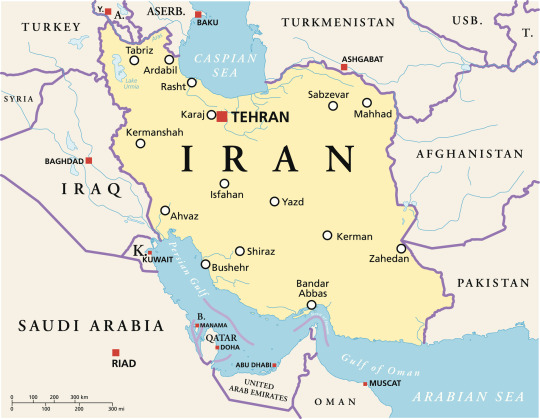
Below:The iranian archaeological site and necropolis Naqsh-e Rostam, located about 13 km northwest of Persepolis, in Fars Province, Iran.
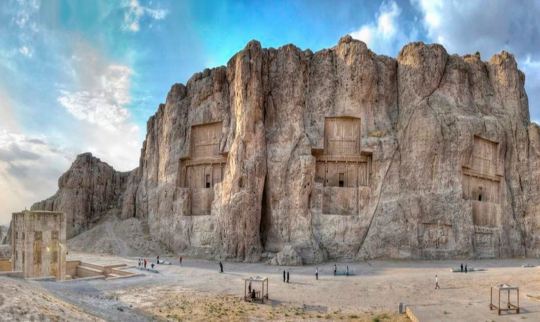
Below:Illustration based on Persian Infantry. Source: Wargames:Immortals-persian-Infantry
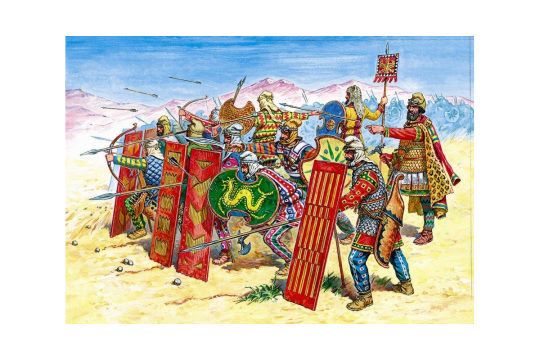
Chogha Zanbil(Persian: چغازنبيل; Elamite: Al Untas Napirisa).It’s a ziggurat,made by the ancient Elamites,located in the Khuzestan province of Iran.
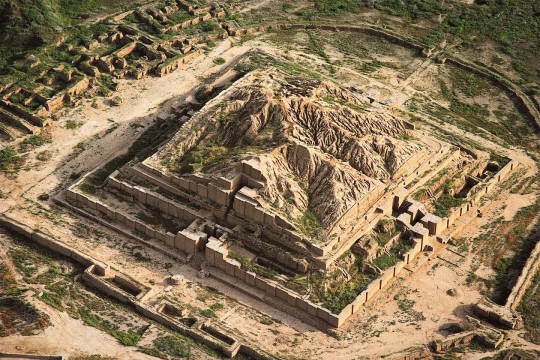
As fans of the Marvel Universe, we appreciate the effort put into creating such a comprehensive guide, but we also recognize the importance of inclusivity and representation.
We hope that future editions of the Atlas will rectify this oversight and shine a spotlight on the diverse landscapes and peoples of Iran, enriching the Marvel Universe even further.
The persian/iranian faravahar:
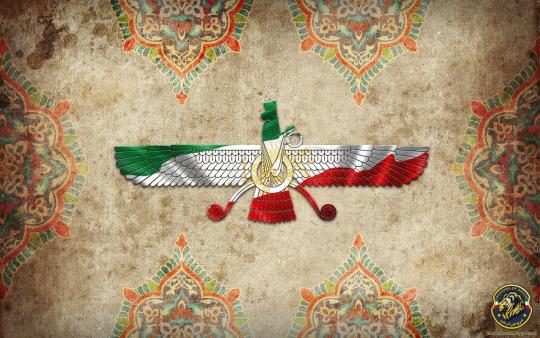
A vital lesson of history is the Biblical magi(plural for Magus):The distinguished wise men who journeyed form lands of the East to visit Jesus after his birth, bearing gifts of gold, frankincense, and myrrh in homage to his birth.
"After Jesus was born in Bethlehem in Judea, during the time of King Herod, Magi from the east came to Jerusalem and asked, “Where is the one who has been born king of the Jews? We saw his star when it rose and have come to worship him.” (Matthew 2:1-2)
Below: The Three Magi, Byzantine mosaic, c. 565, Basilica of Sant'Apollinare Nuovo, Ravenna, Italy (restored during the 19th century). As here, Byzantine art usually depicts the Magi in Persian clothing, which includes breeches, capes, and Phrygian caps.
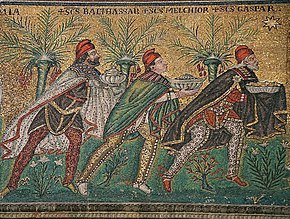
Their identities,and their exact number is a mystery.However prominent figures within the Christianity; they are venerated as saints or even martyrs in many Christians communities, and are the subject of numerous artworks, legends, and customs. Both secular and Christian observers have noted that the Magi popularly serve as a canvas for various ideas, symbols, and creative interpretations
There are legends and narrations bout the prominent three*:
Caspar or Gaspar (and several other Greek or Latin variants such as Gathaspa,[6] Jaspar, Jaspas, etc.)from India .
Melchior (Melichior,[6] Melchyor) from Persia(todays Iran)
Balthasar (Bithisarea,[6] Balthassar) from Arabia.
In the meantime, let's continue to celebrate the MARVEL Atlas for its expansive scope and immersive storytelling, while also advocating for greater diversity and inclusion in our favorite fictional worlds. Excelsior! 🚀📖
*: These names apparently derive from a Greek manuscript probably composed in Alexandria around 500 CE, and which has been translated into Latin with the title Excerpta Latina Barbari.[6] Another Greek document from the 8th century, of presumed Irish origin and translated into Latin with the title Collectanea et Flores, continues the tradition of three kings and their names and gives additional details.
#MARVEL Atlas#MARVEL#archaeology#Ancient Persia#Iran#ایران#Iran Naqsh-e Rostam#نقش رستم#Ancient Iranian Rock reliefs#Achaemenid Empire#Iran Chogha Zanbil#چغازنبيل#ancient ziggurat#Representation Matters#inclusivity#Zoroastrinism#Mazdayasna#فَرْوَهَر#culture#Excelsior#comics#Faravahar#Ahoura Mazda#Biblical Magi#Mathew Gospel#Jesus Christ#The Three Magi#Alexadria
1 note
·
View note
Text

Note: Fic reboot, placeholder post. Will update soon.
Ashes of Empires - Cloti Edition
We wonder, and some Hunter may express wonder like ours, when thro' the wilderness where London stood, holding the Wolf in chase, he meets some fragment huge, and stops to guess what powerful but unrecorded race once dwelt in that annihilated place.
—Horace Smith, 'Ozymandias'
Chapter 1 In the Wilderness
And in a single moment, it was done. The Lifestream receded, and the last of the light faded from the sky. The great calamity that had threatened their world was no more, vanishing in one last, blinding burst of energy, leaving only a shower of particles in its wake, drifting through the night sky. Where there had been chaos mere moments before, silence now reigned. The Avalanche members gathered on the Highwind's bridge looked to one another, half in disbelief, as they realised the significance of what they had just witnessed. It was over. Their long struggle had finally ended.
In the days that followed, they occupied themselves with aiding the survivors of the Meteorfall incident, joining in the rescue operations taking place throughout the remains of the once-great city of Midgar. Then came the reconstruction, during which time due remembrance of the fallen was given, followed by a celebration of their victory and survival.
Then, little by little, their various obligations forced them to return to their prior lives. Despite great reluctance on everyone's part to disband the group, they all knew that this eventuality could not be delayed forever. In the end, they went their separate ways. And the world kept on turning.
But the roots of their struggle ran far deeper than any of them ever suspected...
A year had lapsed, and most members of the old Avalanche crew had settled down, easing into the roles required of them, with some adjusting to the changes better than others, as a new world emerged from the ashes of the old one.
Despite his initial reservations, Vincent Valentine had elected to return to Nibelheim to retake the old Shinra manor. At the outset of his venture, he had questioned whether this task was worth undertaking at all, whether it was even a good idea to return here, to the birthplace of so many nightmares for himself and the world alike. In the end, he deemed his mission unavoidable, an unfinished duty that fell to him alone. There was no telling what horrors the late Hojo had left in his wake. And thus he set about cleansing the old manor house, stamping out the last traces of his tormentor's deranged experiments.
The days following his arrival were spent purging the manor of its lingering wraiths, a cathartic enterprise, and one that kept his mind busy; a literal approach to exorcising his demons, figurative and real alike. He took care to be thorough, scouring the infamous manor of its roving abominations until not a single one remained. With his reckoning completed and his new lodgings thus secured, he began to delve into the basement laboratory's voluminous library, sifting through its scientific collectanea, more for the sake of satisfying his own curiosity than any practical concerns.
And so he gradually began to settle down in the old Shinra manor, having made it habitable once more. The countryside's seclusion suited him. The mansion was not so remote from human civilization that it made acquiring provisions difficult, but still far enough removed that few visitors troubled him. Shortly before his own arrival, a group of displaced people from the eastern continent had come across the facsimile of old Nibelheim, now abandoned, and resettled the ghost town. The new inhabitants quickly made the town their own, to live and work in, with little idea of its sordid past. They kept away from the brooding mansion at the edge of town, paying no heed to the solitary figure that could sometimes be glimpsed watching over the town from the upstairs window. Few concerned themselves with who lived there, if anyone, and most were simply too preoccupied with their own lives to care. Observing life continuing in this manner, Vincent reflected upon how quickly the world forgot. Perhaps, he thought, it was for the better.
Then, late one night, near the end of the fall, he found himself roused from his state of torpor by a heavy knocking at the door, as that of someone beating against it with the last of their strength. He set aside the heavy tome resting in his lap and got up from his chair to see who it was. Shifting back the heavy door, he was surprised to find Tifa Lockheart standing outside in the torrential rain, shivering from the autumn cold, looking tired and forlorn, her eyes red and swollen. She spoke up before he had a chance to ask what she was doing out there all by herself, the question half-formed on his lips as she struggled to speak in between laboured breaths.
"He's gone."
There was no need for her to explain further. He knew who she meant. He wrenched the double doors open, urging her to come in from the rain. She took half a step before faltering. He caught her, enfolding her in his arms as she wept, her body half-hidden by his thick cloak.
He served the two of them supper, a quiet and somewhat awkward affair, given how unused he was to having company. They exchanged few words, though the look on Tifa's face told him she was grateful for his hospitality.
Once their meal was concluded, he urged her to rest, after what had no doubt been a harrowing journey. He fashioned her with a comfortable bed in one of the guest bedrooms, and it was not long before she was asleep, drifting off to the sound of rain beating against the glass.
These things were, he knew, mere salve for her trials and tribulations. With little else to do, he pondered the cause of her distress. She and Cloud had parted ways. The exact nature of their falling out eluded him, though it was not hard to guess that it had been a bitter one. It was difficult for him to understand how the two of them had failed to find happiness together after their victory over Sephiroth and Jenova. He had watched from a distance as their relationship slowly disintegrated, as what seemed a foregone conclusion never came together the way everyone expected it would.
Her anguish, Vincent realised, was not merely the result of her own frustrated desires, but the way in which she remained powerless to stop her childhood friend from sabotaging himself out of misguided guilt. From his vantage point as an outsider, their relationship always seemed a case of 'too little, too late'. Perhaps it was never meant to be, he thought. But that did not make their parting any easier.
He stood in the doorway, watching over Tifa as she slumbered,
tracing the delicate outline of her face by the warm glow of the flickering candlelight, wishing there was something more he could do.
Cloud Strife marched on through the snow field, a solitary figure passing through the wintry desolation of the frozen north. He drew up the collar of his shirt, covering the lower half of his face to guard against the bitter wind and heavy snowfall as they threatened to coalesce into a full-fledged blizzard. Deviating from his current path, he pressed on, seeking shelter in the nearby forest as the weather grew more severe.
The wind died away, little by little, as he passed between the thick columns of birch and oak, ancient titans older than man, towering over the winter landscape, casting long shadows. Reaching the first visible clearing, he pulled his collar down again, inhaling the cool, crisp air, now that he was out of the worst of the storm, no longer assailed by cold blasts of wind that threatened to snatch one's breath away.
As he moved towards the centre of the glade, he became aware of some unseen multitude mobilising in the shadows, stalking him. He could hear the faint sounds of branches being trampled, the nearly imperceptible patter of footsteps in the snow. Then, a low howling as his pursuers drew near. He turned to see a large grey wolf emerging from behind the trees. Then another. A third. Before long, the whole pack had revealed itself. Glancing from one side of the clearing to the other only confirmed his suspicion; he was surrounded, caught in their ambush.
The wolves stood their ground, encircling him, cutting off every possible escape route. They observed the human in their midst with a guarded demeanour, as though waiting for something. Cloud realised his error. He was trespassing on their territory, and the wolves, clearly angered by such a brazen violation of the sanctity of their domain, had rallied against him, though it was not clear whether they intended him harm, or if they were simply trying to scare off the intruder that had wandered into their sanctum. Adopting a defensive stance, he slowly reached for his blade, drawing it a few inches from its sheath, while holding up his free hand in a propitiatory gesture, hoping to communicate to them that he meant no disrespect, and that he merely wished to pass through.
"Easy.."
His eyes darted from one wolf to the next, regarding each in turn, watching for signs of movement as he backed away, taking slow, tentative steps towards the edge of the clearing. The wolves crouched low, bending their ears back even as they bared their teeth, their expressions a blend of aggression and fear. It was doubtful that they encountered many humans, being so far removed from any of their settlements, and their behaviour betrayed an uncertainty of whether to attack the unwelcome visitor or let him go.
Though they remained tense, their growling began to quiet down as he moved away from the clearing, watching them carefully as he retreated. Before he had made it halfway from the centre, however, an old wolf, the alpha male of the pack, emerged from the shadows. The wolf, a prideful and great brute, whose scarred visage spoke of untold trials faced during the years of guiding and protecting its pack, fixed the human interloper with a murderous gaze. It snarled at him, its anger provoking the other wolves out of their state of hesitation. They began to bark and howl, as well, their clamour rising in a gradual crescendo as they worked themselves into a hunting frenzy.
Cloud froze in place, turning as the alpha wolf charged at him. He drew, dodged, and cut, all in a single, practised motion as the wolf leapt up at him. The tip of his blade cleaved the side of the wolf's torso, and the great beast fell heavy to the ground. Staggered, he held his blade up, hands trembling from the lingering reverberation of the blow. He drew a terse breath as he looked to the other wolves, who remained in place, watching the confrontation with dismay, uncertain of whether to fight or flee. For a long moment, neither he nor they made any move, as if waiting to see whose nerve would give out first.
Their stand-off was interrupted by a low growl, coming from the twitching body of the head wolf. Cloud looked over his shoulder to see the beast, which he had assumed dead, slowly rising back to its feet, all but ignoring the fatal wound he had dealt it. The great wolf shook with pain and rage, its unchecked, maniacal fury twisting its face into a demoniac mask.
Before he knew what was happening, the wolf charged him a second time, bounding through the snow with alarming speed. Bracing himself, he swung again as it jumped up. This time, however, he missed, and the wolf came down hard, overpowering him with its bulk, forcing the sword from his hand as it drove him down to the ground. His head smashed against the cold earth, the force of the impact leaving his ears ringing and his vision blurred.
In his hazy mental state, he was vaguely aware of the other wolves closing in, galvanised by their leader's charge. They circled the two combatants, howling and chanting, spurring on the monstrous, frantic thing towering over him. He shook off his disorientation, dodging in time to avoid a fatal bite. His aggressor, however, gave no quarter, pinning him to the forest floor as it continued its relentless attack. Cloud seized the frenzied beast by the throat, holding the great wolf at bay as it snapped at him, aiming for his face and neck with its powerful jaws.
Searching for some way to counter the wolf's attacks, he spotted his blade lying in the snow, having slipped from his hands as he fell. He made to reach for it, but the wolf's erratic movements made it impossible for him to release his grip on its neck without risking letting it overpower him. He was left no other choice, however. The other wolves were drawing nearer still, and his assailant's attacks were growing more manic and unpredictable. The wolf simply would not let up, having been driven out of its mind by pain and anger, raging at him hysterically, with no care for its own safety, as though wishing to damn its mortal enemy with its dying breath.
With great effort, he managed to deflect the wolf's attacks, pushing its head to the side with one hand, freeing up the other to reach for his weapon. He extended his arm as far as he could without losing his grip on the wolf, and his fingers brushed against the hilt, but it was too far away for him to take hold of it. The wolf, meanwhile, managed to break free from his hold and threatened to overwhelm him, forcing him to abandon his sword in the snow to hold it off with both hands again.
Frustrated, he gave up on trying to reclaim his weapon. There was only one option left to him, one that had slipped his mind in the sheer chaos of the moment. Still keeping his attacker at bay, he reached for the knife concealed underneath his loose sleeve, taking the hilt with an underhand grip. Tearing the knife free from its scabbard, he plunged the blade deep into the side of the wolf's neck.
To his surprise, the wolf, though temporarily fazed, continued to press, biting and snapping away in spite of the critical wound it had just received. Gritting his teeth, Cloud wrenched the knife back out, sending a spray of blood gushing from the laceration, before stabbing repeatedly against the wolf's head and neck, attacking wildly in order to stymie his enemy's onslaught.
The final blow struck the wolf's head, piercing its skull, but even this was not enough to discourage the enraged beast's aggression, though he had finally managed to force it to a temporary halt. He gripped the knife more firmly, forcing the blade deeper, inch by painful inch, while the wolf continued its attempts to sink its teeth into his flesh.
Despite the great beast's unnatural vigour, he could see the light in its eyes begin to fade, its mental faculties slowly degrading as the cold steel dug into its grey matter. The thing began to tremble, yet it fought on, even as the knife robbed it of its cognition and strength. The wolf's movements finally began to slow, however, its attacks reduced to an ineffectual gumming, and its roar faded to a pitiable whimper. It stared down at him with discoloured eyes, half-blind from the blood pooling beneath their surface. At last, the wolf surrendered its struggle. Its head sank down to the ground, and it lay there, unmoving, breathing its last.
Exhaling heavily, Cloud loosed the knife from the wolf's head again, rolling away the heavy carcass as he forced himself back to his feet. He snatched up his blade with his free hand, drawing a ragged breath as he watched the other wolves for their reaction, bracing himself for a second attack with his sword in one hand and the knife in the other. The great wolf's lifeblood dripped from the tip of the latter weapon, as well as his clothing and face, colouring the snow beneath a deep crimson. The rest of the pack watched him with newfound apprehension, remaining perfectly still, uncertain of what to do. None of them, it seemed, had suspected this outcome. They looked to one another for a moment before dispersing, vanishing into the woods as quickly as they had appeared, leaving him by himself in the clearing once again. Relaxing his guard at last, he breathed a sigh of relief.
A few moments later, he found himself kneeling at a small brook, the outlet of some subnivean stream further away, washing the rivulets of blood from his face with the freezing water. He then picked up a handful of snow from the ground, cleaning his weapons and clothing as best he could. As he worked, he felt something tugging at his pants leg, as if some small creature were nipping at his heels. Surprised, he turned and stood to see a wolf cub, no more than two months old. The cub, having got his attention, stared back up at him with earnest curiosity, panting and wagging its tail.
The cub had strayed from the rest of the pack by accident, it seemed. It appeared to be unaware of what had transpired only moments earlier, or it was possible that its curiosity about the strange visitor in the woods had overpowered its sense of danger. In either case, it continued to watch him with interest, yapping a couple of times, then tilting its head, its manner friendly and unassuming. Innocent.
Cloud looked back down at the whelp with a wistful expression on his face. No doubt killing the old wolf would leave the cub's pack more vulnerable to predation, and less able to fend for themselves in the harsh winter. Though it had done its best to take his own life, he couldn't help but feel a vague regret over slaying the great beast. He had been trespassing on their territory unknowingly, after all.
He knelt down, reaching out to touch the wolf cub's head, moving slowly to see if it would object. Seeing that it did not seem to mind, he stroked it briefly, patting its head. The pup responded favourably to the gesture, leaning into his touch, whimpering softly as he ran his hand over its lightly mottled coat.
"I'm sorry."
He looked up again as he heard a barking in the distance, emanating from the woods. The cub, too, turned its attention to the older wolf, perhaps its mother, watching the two of them from a nearby hillock clothed in thick firs. Cloud rose to his feet, growing alert again in anticipation of a second attack. The parent wolf merely stood there, however, waiting while the cub darted back to its side. It turned away, exchanging one last glance with the human invader, as if to bid him leave in peace. Their territory thus demarcated, the wolves departed for good.
Peering at his reflection in the water, Cloud noticed a thin scar, almost imperceptible, running down his cheek as a result of the earlier encounter. Such attacks, he knew, were uncommon, apt only to occur in the deep of the wilderness, far from any settlement, where the animals remained unaccustomed to human depredation. The whole affair was a lamentable one. But it would not do to dwell on such things for long, he reminded himself. Here was a world more savage, more primal, far removed from the pretensions of civil society. Such extreme isolation should have repelled him, as it did other people, who valued their security above all else, but to his surprise, he found that the solitude of the wild and its honest savagery suited him better than the clamorous cities of the world, where would have been no less ill at ease. Here, at least, there was no pretence of innocence. Only predators, prey, and the thin line dividing the former from the latter. And, as he had learned today, a moment's indiscretion could quickly change on which side of that line one stood.
With this in mind, he took off once more, bracing himself for the journey that lay ahead. The Northern Crater awaited him, and he had places to visit along the way, few of which were any more hospitable than his current whereabouts.
Yuffie Kisaragi slipped inside her room, having dismissed her bodyguard and retinue of servants for as long as she felt she could get away with without rousing suspicion. She slid the door shut, then seated herself on the floor in front of the small vanity situated near the entrance, adopting the customary posture for formal occasions purely out of habit, even though she was all by herself.
She stared at her reflection for a long moment. Nearly two years had passed since Avalanche's dissolution, and her transformation could not have been more radical, on the outside, at least. She no longer recognised the ghost in the mirror, this pale imitation of the energetic young girl who had travelled half-way across the world on her own, before joining up with the band of resistance fighters on a whim.
She had grown her hair out, painstakingly grooming and layering it, wearing it in the style of traditional Wutaian court fashion in an attempt to strike a more 'lady-like' figure, in accordance with her father's wishes. Her face, too, evinced a number of outward changes, caked as it was with heavy white make-up, coupled with subtle red and black accents around the eyes and a hint of blush applied to her cheeks. In all, she resembled a porcelain doll more than a human being, a model of perfect manner and grace, docile and restrained, nothing like her old self.
This change was not the result of coercion on her father's part, or anyone else's, for that matter. Despite her profound disdain for authority and tradition, she had forced herself to undertake this alteration as something she deemed necessary as part of Wutai's healing process. She understood that now that Shinra was gone, it was, as her father liked to remind her, a time of rebuilding, not of conflict, and that called for a different kind of sacrifice. She had known the day was coming when she had to 'grow up'; that was, to give up her natural inclination to eschew her duties towards her country in favour of running off to explore the far corners of the world. It was unavoidable. She simply had not expected it to come so soon.
Her refusal to accept this duty had played a large part in her running away from home the first time, along with her constant squabbling with her father over that very matter. But as much as she resisted the notion, she knew Godo was right. So she played her part, assuming her role as his aide and right hand on the council, suppressing her naturally effusive personality in order to blend in during their various political engagements inside and outside the country. Her new act was little more than a social mask, of course, worn for the same reason as her sudden change in dress and bearing. That's how it had begun, at least. Now, she was not so sure. That mask was getting to fit a little too well, she thought. A little too closely..
She shifted her position as she regarded the impostor staring back at her. Sitting in this manner had presented her with some difficulty when she first began to attend council meetings along with her father, being that she was nearly allergic to the stifling artifice demanded by such events, and had avoided them for the greater part of her life. As a result, she had never grown accustomed to displaying the decorum and grace that was, by tradition, expected of women of her lineage. In the beginning, she had harboured serious doubts about whether she would be able to master the discipline required to do so. She was not alone in her doubts, as evidenced by the surprised look on everyone's faces when she suddenly decided to set aside her transient and careless approach to life in order to participate in the court's political affairs. It was the first time that she had ever displayed, or, at any rate, feigned, any interest in such matters.
It was no secret, after all, that she preferred the freedom and excitement offered by the other side of her heritage. During her childhood, her father had tolerated her near-obsession with her ninjutsu training, reasoning that it was the only way that she would even sit still for what he viewed as her proper lessons. He had hoped that her enthusiasm for such unbecoming behaviour, as he termed it, would fade away in time, but, much to his growing consternation, her interest never waned. Indeed, it had only gotten worse when she first discovered materia and its various applications in combat. Before long, she had proven herself the foremost of her master's disciples, something that their pride forbade them to admit.
Similarly, the courtiers' doubts about her ability to adjust to court life had served to spur her on, igniting in her the same spirit of defiance that had driven her during her childhood, the only difference between then and now being the activities into which she channelled her energy. Much like before, she was motivated by the intent not to let anyone get the better of her. As exacting as the strictures of Wutai's high society could be, she would be damned if she let its members smugly affirm to themselves the worst that they thought of her by giving up.
Even so, making the requisite changes had been a great struggle for her. Having to partake in ancient rituals and ceremonies, and adopt old and obscure customs for their own sake, something for which she could find no purpose or rational justification other than vague appeals to 'tradition', went against her nature in every way possible. The temptation to say to hell with it all and simply run away again had been overwhelming, and several times she had come close to doing just that. She persevered, however, out of loyalty to her country, if nothing else. In time, the lessons from her childhood, the ones she had done her best to ignore and forget, had come back to her, little by little. By now, she had perfected the act, and had even come to believe it herself at times. She had proven her doubters wrong, deriving a sly satisfaction from doing so. But her little victory had come at a great cost, and she was starting to fear that if she did not break away from the masquerade soon, her true self would be subsumed by the false exterior which she had worked so hard to maintain.
In the end, the choice to undertake all of this effort had been hers, but after nearly two years of pretence, not to mention the hardships and restraint it demanded, she was beginning to question the wisdom of her decision. While it was true that her motherland had recovered to a great extent since Shinra's downfall, and that she had no doubt played an important role in that recovery, Wutai's society remained rigid and unchanging as ever, especially in regards to its implicit enforcement of gender roles and social order. Any attempt on her part to challenge the dominant patriarchy, whether from within or without, seemed destined to failure so long as she remained the only one to openly criticise the otherwise unquestioned conformity that allowed such conditions to persist, long after the rest of the world had done away with them.
It was heartbreaking, watching her country vanishing back into the past, rather than forging ahead towards the future, as she had hoped it would. She was sick of pretending in front of the endless cavalcade of vacuous ministers, politicians and dignitaries, whose only motives, as far as she could tell, were to preserve a retrograde social hierarchy that had long been engineered in their favour. If preserving tradition meant remaining stuck in the past, she wanted no more part in it. And as much as she wanted to help Wutai, she doubted that she could bear the burden much longer if it meant losing herself in the process.
She took another look at herself in the mirror. Her old self was indeed close to disappearing beneath her counterfeit exterior. Even her smile was no longer her own, more closely resembling a grimace than anything else. Breaking away from her reflection, she steeled herself mentally for what was to come next. Her mind was made up. All that was left was to follow through with the act itself.
She reached for a sheet of paper and a brush from the nearby desk, grinding a coarse block of ink into a bowl and mixing it with water before dipping the brush into the fresh mixture. Touching the tip of the brush against the smooth paper, she began to write.
"Dear father,
I'm leaving Wutai. I'd explain the reasons why, but I think we both already know.
With our old enemy removed, our greatest threats now come from within. Perhaps they always have. What Shinra did to us was criminal, but what we keep doing to ourselves may be even worse.
Our empire will be restored. Of this, I have no doubt. Wutai will flourish, with or without me. I see that now. I only wish it could mature sooner. I've tried doing things your way, because I thought I could help make that change from within. But the problem is greater than I could see. Greater than either of us. Things are changing, yes, but not quickly enough. I worry that we will be eternally trapped in the past if we continue to rely blindly upon tradition alone to guide us, and I don't see that changing any time soon.
You are not to blame in this. But I can't keep up this facade any longer. This is not who I am.
Don't look for me. I'm not coming back.
-Yuffie"
She composed her letter in finely-wrought calligraphic script, the end result of countless hours spent in cold classrooms during her childhood, labouring under the watchful eye of her unforgiving tutor, earning a sharp strike on the back of her hand for every malformed character and accidental slip of the brush. She tried her best not to wince as she thought of those times, concentrating instead solely on the act of writing. Once finished, she laid the brush aside, folding the letter and stamping it with the imperial seal.
Having left her message, she turned her attention to her physical appearance. She removed the hairpins and ornaments from her hair, loosening and unweaving the bun into which it had been tied, letting her long locks flow past her shoulders, extending nearly to the small of her back. Gathering them up in one hand, she took a knife from the drawer and pressed it up against them. Hesitating, she glanced up at her reflection for a moment before continuing, slicing through her locks with the sharp blade, breathing a sigh of relief as they came loose. She cast the severed strands aside, the slight regret she felt over discarding them after nearly two years of care and attention outweighed by her relief at having rid herself of such an encumbrance. She then proceeded to wipe away the heavy make-up from her face with a damp cloth, until at last some semblance of the person hidden underneath it all began to emerge.
Her transformative ritual completed, she slowly rose to her feet. Ducking behind the folding screens in the corner of the room, she quickly undressed, leaving her brocaded garments on the floor, before throwing her closet open and rummaging through it, piecing together an outfit by haphazardly picking out whatever clothes she could assemble in under a minute: Boots, stockings, shorts, a black camisole with a floral pattern, and a grey jacket. Thus attired, she knelt down in front of the wall behind the closet, sliding open the hidden compartment where she kept her old collection of weapons: throwing daggers, caltrops, materia, and her combat shuriken.
Unable to locate her old headband, she replaced it with a simpler one, tying it in a hachimaki as she headed for the window at the opposite side of the room. She paused in front of the mirror, trying on a different smile, now that she was free of her self-imposed restraints. Better, if not quite as luminous as her usual, carefree grin. But it would do for now.
As she pushed open the window, she stopped again for a moment, hesitating as the full weight of her decision occurred to her. This was no mere flippancy on her part. She was leaving her home for good, burning every bridge she had spent the last two years building here in the process. Knowing that her own reluctance was the only remaining threshold to be overcome, she was resolved not to abandon anything she might regret leaving behind. After this, there would be no turning back.
She looked over her bedroom one last time, taking in its sparse furnishings. A few hanging scrolls lined the walls, a simple paper lantern in the corner cast a dim glow amidst the shadows, and a small alcove held most of the trinkets she had deemed worth keeping around: folding fans, decorative carvings, and other keepsakes. Nothing out of the ordinary. A nearby shelf displayed an array of animal shapes wrought from folded paper, a hobby she had taken up in order to keep her hands busy and maintain her finger dexterity in lieu of sparring or open combat, neither of which she'd had much cause to engage in since her split with Avalanche.
One object caught her eye as she turned to climb out the window: an old scroll passed down from one generation to another, its inscription a reminder of her bloodline's heritage, drawn from the folk tales of her people:
'Child of Leviathan'
This, too, she would have to leave behind, abandoning the gilded cage for an uncertain future that held no promise of anything for her, save for a vague notion of freedom. In the end, however, she could think of little here that she would miss. There was no more time for second thoughts. She decided that if it was too heavy to carry with her, it wasn't worth worrying about.
Satisfied that she had everything she needed, she vaulted out onto the roof, easing back into the acrobatic bearing that she had all but suspended for the better part of two years. She leaned over the edge, enumerating the potential obstacles in her path, before leaping down to the ground with the aid of the branches of a nearby pine tree. Shouldering her backpack and pulling the hood up over her head, she took care not to be seen by the royal guards stationed around the outer perimeter of the Kisaragi mansion.
The sheer number of soldiers patrolling the area forced her to circle around the floating pavilion opposite the mansion, but eventually she got far enough away from the estate to feel safe to remove the hood once again. Reaching the marketplace, she did her best to blend in with the multitude, which swayed in every which direction, in an effort to escape the scorching heat of summer. Two years ago, she might have been concerned that someone would recognise her as she wandered about freely, but considering how little the outside world had seen of her since those days, there was hardly any for her to fear being called out by a stranger. By the time she had made her way into the bustling thoroughfare at the edge of town, she was just another face in the crowd.
2 notes
·
View notes
Text

I have all collectanea in my book-reading app 😄 http://dlvr.it/T0X0Bf
1 note
·
View note